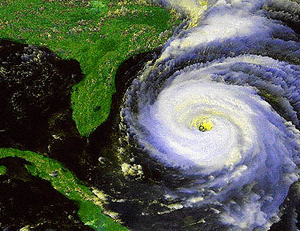
|
Neotoy Story Answers THE DAVOS QUESTION 08
Y07M12D23 When I first read THE DAVOS QUESTION on YouTube I almost felt as though it was either too broad or too narrow to answer, but since that's never stopped me before I thought I'd try anyway. After a lot of thought I came up with at least one idea that seemed to stick given the scale and scope of the question. My answer? Holistic Economic Metrics CAN make the world a much better place. Let me explain. In the modern free market environment the price of any good or service is determined by the classical supply and demand model. In a sense value can be equated to what people are willing to pay, and is therefore relative rather than absolute. For example, a barrel of oil may be valued at 99 USD ~ this is essentially an arbitrary number, and represents nothing more than what the market will pay. This is a problem, a very big problem that threatens the very survival of our civilization. In contemporary economics it is assumed that the wisdom of the free market will prevail. For example, if the oil supply cannot meet the market demand the price will continue to rise until it becomes unfordable, at which point consumers will switch to a more economical alternative. This assumption however is based on yet another assumption ~ the market has assumed that the value of a barrel of oil is relative rather than absolute, the market has determined that 99 USD is an appropriate value. What the market does not assume is that it has no real idea whatsoever how much a barrel of oil is worth in relation to an assortment of relevant factors that are routinely ignored. What this amounts to is an economic fabric poked full of holes. These holes represent the absence of critical information, information that a free market economy simply cannot survive without. The obvious rebuttal to this statement would be the presumption that the free market system is working and has been for centuries, but without accurate metrics it's impossible to say that with any certainty. From an environmental perspective the opposite seems to be true. The economy may appear to be thriving, but if the environment is being destroyed as a result, the free market will inevitably engineer its own collapse. Which is why, as my response to the davos question I have selected "holistic economic metrics" as my answer. It is imperative that we reveal the long-term, bigger picture now. Because a barrel of oil is not just a barrel of oil, it is a symbol that represents the vast spectrum of results and unintended consequences that cannot be summarily reduced to 99 USD, or even potentially 9 million USD. Until our species makes the choice to do the math, it's impossible to gauge the actual economic cost of our industrial practices and by extension the goods and services they generate. This is just one example out of billions, all of which are connected and intertwined in an intricate global network that remains essentially invisible to the very people who brought it into existence. This lack of transparency is dangerous. Historically its caused nothing but trouble. I think it's time that humanity stopped speculating about the value of natural resources. This can be achieved by putting a price on all the hidden costs associated with industrialization. When I look at a barrel of oil, I don't see a steel drum full of light sweet crude, nor do I see 99 points added to my score. What I see is a hundred new cases of asthma, a dozen carbon-monoxide related deaths, an acre of ocean covered in plastic, drowned birds and dead fish. It makes no sense for a genuine free market to ignore these significant values. There's no religious or political ambiguity in these numbers, this is something that everyone can agree upon. It's in the best interest of every human on earth to understand the real value and cost of everything from a barrel of oil to a diamond engagement ring. We need to stop pretending that our economy is self sustaining. The real value of products and services can be determined by subtracting the holistic cost from the artificial market value. Sticking with the classic example, if the holistic cost of a barrel of oil is 100 USD and the artificial market value is 99 USD the product is quite obviously not economical. In which case it is clearly insane to support an industry that has no profit margin! The current model tries to simulate this process but fails. Our economic system in its current form is simply not advanced enough to comprehend the consequences of its own actions. It is like a blind giant lumbering from continent to continent leaving incalculable ruin in its wake. I propose that we give this giant a set of eyes so that it might tread more gently and maybe someday even look upon itself. Morons per Gallon + The Davos Question (first impressions) Y07M12D21 Another $10 Million up in smoke. Why does WIRED cover this crap? To someone living in the 1980's the concept of a vehicle that could get 100 miles-per-gallon probably would have sparked some interest. In 2007 however, the suggestion evokes a response more akin to "are you fucking out of your mind?" - Not because 100 mpg is an impossible technical pipe-dream, but because the idea of actually putting more time and energy (and 10 million dollars) into a project dependent on our doomed fossil fuel industry is pure insanity. You just don't get it do you, the age of oil is over. It's been over for a very long time now. Every penny spent at the pump, every dime that goes into the production process, every dollar exchanged electronically in service of the oil industry is instantaneously transmuted into more debt. There is no up side, there is no benefit, there is no ROI; there is only the burning, the entire planet is on fire and yet, there are still people stupid enough to take this bullshit seriously! On a brighter note, science juggernaut Stanford University has made a significant breakthrough in battery technology that has the potential to dispense with farcical nonsense like fossil fuels (in vehicles) for good. In short the revolutionary application of silicon nanowires to the conventional lithium ion battery structure results in a 10 fold increase in charge capacity. In other words, it is now theoretically possible to produce economical long range electric vehicles (not that it wasn't already). Why not give THEM 10 million dollars, instead of those 100 mpg idiots? Which brings us to the next paragraph, regarding "THE DAVOS QUESTION 08" - in words that could have very easy been taken out of my own mouth: "What one thing do you think that countries, companies or individuals must do to make the world a better place in 2008?" Indeed. After giving this a lot of thought, I came up with a mental fragment; the problem is not with ideas but rather the productive infrastructure. What this sentence means to me is that a lack of good ideas is not the problem, in other words, the world remains as it is not because people are stupid ignorant and weak, but because they are deprived of the actual channels, resources and power required to make it a better place. This is a treacherous concept mainly because from a sociopolitical standpoint people are changing the world all the time which gives the illusion of a productive infrastructure.. what most people overlook is that these changes are frequently unconscious, most often they are entirely random. And I guess that would be my partial answer to the davos question. Basically the entire world lacks a genuinely productive infrastructure that allows for positive change and betterment, mainly because there is no real sense of connectivity or community between people. Part of the problem is that so many fake communities exist, false organizations that pretend to listen, pretend to communicate, pretend to exist. Once again this is a failing in perception on the part of humanity, most people are unable to recognize the difference between activity and actuality. For an ancillary example, just because a video on YouTube gets hundreds of thousands of views does not necessarily mean that it has value, this is because the perceptual metrics are not holistic, but rather selected at random from an arbitrary list of perceptual interests shared by a very small percentage of life on earth. So, in answer to the davos question, I think that countries, companies, individuals and ultimately the world will be best served by establishing a productive infrastructure that allows us to make conscious changes to the human condition. An infrastructure which most importantly views humanity in a planetary, or holistic context, rather than as a disproportionately significant focal point. This will give us all a more realistic view of reality, allowing us to make smarter choices that will get better results and improve our way of life. The marijuana "debate" Y07M12D22 Here in California it's not uncommon to know people who's sole source of income is derived from the cultivation and sale of marijuana.. The only reason they are able to make a living, is because of its quasi-illegality. If there is one reason to legalize pot, it would be to drive the price down so that there is no longer a shady weed industry comprised of countless potheads getting paid real money for something that should be as cheap and plentiful as alcohol and tobacco; just like it is in other far more civilized nations, the Netherlands for example. Like so many other heavily debated fringe issues in the US, the average citizen has to wonder: Why is this an issue at all? The obvious answer is economics. People who make it a moral issue are being both idiotic and hypocritical. No one in their right mind would seriously listen to such flagrant lies. I do not smoke dope, I do not care if other people do. I am just sick and tired of people discussing the issue as if there was something of substance to debate. As long as tobacco and alcohol are openly available contesting the legality of marijuana is insane. If you disagree, I demand that you immediately shut the fuck up, otherwise your only option is to insist that both alcohol and tobacco, which incidentally are much more hazardous to human health, be treated in the same way as marijuana. I repeat: there is nothing to debate. People who actively contest this issue should be viewed and treated as mentally ill, not listened to or allowed to legislate. Meanwhile, the rest of us who have real jobs, and fully functional brains are at a distinct economic disadvantage, it's sickening. The laws are a total failure and the only people who respect them are the ones who have no intention of smoking pot in the first place. Word Y07M12D18 The Truth About Religion In religion just like everything else there are two classes of people; upper and lower. These two classes of people can be clearly identified by their behavior, or more specifically how they apply their religion to their lives and relationships, essentially the aspects of their religion upon which they choose to focus and those that they chose to ignore. The lower class will use their religion as a crutch to prop up their own agenda and personal views. In other words the syntax of the religion becomes the focal point of the alleged zealot. In this sense the lower class will always defer to their religion, never taking responsibility for their own actions and yet using their religion to justify morally reprehensible acts allowed or even inspired by their own personal interpretation of the syntax. This often leads to intrusive or even violent attempts to force religious ideals upon other people. At this point it becomes clear that neither deity nor syntax is being served; individuals are merely using conventional human tactics to fulfill their own personal desires. The upper class will focus on the context of their religion first. The syntax is relative rather than absolute, providing insight into real life but not overriding or dictating it. Mainly however this impulse stems from the sincere desire to see things as they may be, rather than through a human transcribed lens of predetermination. This is not being skeptical or irreverent, it is merely being respectful of the lowest common denominator; which makes a lot of sense, since none of us are born with an inherent and infallible religion hardwired into our brains. Even in instances of extreme faith and dedication the upper class will not force their religion on other people or expect them to conform to it - because religion has been recognized as a personal choice rather than something universal that can be applied unconditionally to everyone on earth. In summary it's human weakness, not religion that compels people to take theological concepts and use them for their own selfish purposes. Arguably without religion such concepts would not exist, however that wouldn't stop people from using violence and existential threats to convince others that one idea is superior to another, all for their own personal gain. In fact, you see it frequently in social, political and commercial circles. Ultimately I find myself wondering if religion even exists. A world without Islam, Christianity, Catholicism, Judaism, Hinduism, Buddhism, etc. would it really be any different? I seriously doubt it. And yet I believe that this realization is at the core of every religion; if it is real, and people are sincerely seeking it, that is because religion is bigger than our ideals and petty metaphysical pursuits. We are inside of it, it is not inside of us. Such a thing should come naturally, we should not need scriptures or mantras or rituals to understand it. The very act of living is our one unifying human religion. Modern Mythology Y07M12D11 Question: Why are people still using that steaming pile of dogshit that is Symantec Norton Antivirus? First off, ignoring the general fact that all of Symantec's products are ginormous, bloated, archaic hairballs of code teleported through time from some long forgotten dark age of broken information technology; designed exclusively to royally fuck up your computer.. There is still the problem with the actual application of said software; let me clue you in: Want to be safe from viruses, worms and spyware? It's easy, follow a few simple rules that any idiot can manage. #1. Never click on an email attachment unless you are 100% certain of what it is and who it is from. If one of your "friends" sends you an email with a file attached, don't be stupid and open it without thinking; is the email or attachment suspicious in any way? THEN DON'T OPEN IT GENIUS! It's just an email, not a check for 1,000,000 dollars. If you follow this one simple rule you will be safe from 999 out of 1000 so called 'viruses' and 'worms'. #2. Don't open/execute downloaded files unless you are 100% sure that they are safe. Everyone at some point will download a random program from a random website. If you can't trust the website then don't open the file. Always ask yourself: is this (fill in the blank) really worth it? The answer is almost always NO. If you are unsure about the integrity of a website, do some research first, you're on the internet for Christ's sake! #3. Use Firefox and Thunderbird, not Internet Explorer and Outlook. If you can follow the two steps above, the only remaining threat to the security of your computer is a browser exploit. Browsing the web is never 100% safe, but as long as you are using a decent browser and email client your chances of being compromised are astronomically low; yes, even when routinely visiting shady porn and warez sites. In summary, if you're not smart enough to manage these three simple steps you quite frankly shouldn't be able or allowed to use a computer. Still think it's too much for you to handle? Then how do you expect to use antivirus software? It's not automatic, in fact, antivirus software is just going to make your computer harder to use; asking you more questions and requiring more configuration while simultaneously tying up resources and degrading overall system performance. All on the offhand chance that your computer will become infected.. An event about as likely as getting struck by a meteor. Ironically, new viruses and their innumerable variations are being written every minute; no antivirus software on earth is able to keep up the sheer variety of new attacks; even if it were updated several times a day. So in other words, even with antivirus software you're in no way being protected. What most people never think about however, is that the actual probability of an average computer user being the first victim of a new virus is virtually nonexistent. Meanwhile companies like Symantec get rich because people are too stupid, ignorant and afraid to face the realities of using one of the most powerful technologies on earth. Furthermore they exacerbate the situation by buying into the lies propagated through the marketing and advertisement of worthless, system handicapping products like Norton Antivirus. Please do not be one of these idiots, before you subscribe to the antivirus mentality or so-called security software, read up! Don't just throw money at these charlatans and expect to be protected by their bullshit products. The only way to really be safe is to educate yourself. Because Life Is Random Y07M12D07 Yes, it's time for another random review of a product that really doesn't need one! But not to sell myself short, I know that some people come to Neotoy just for my legendary design insight, so without further fanfare. Recently I was given one of Apple's 2G iPod Shuffles.. 
I spent 2 hours getting the damn thing functional/friendly with my PC.. and yes, I was using the latest version of iTunes. The problem came down to a combination of operator error and device malfunction. To make a long story short, I had to wade through the ghastly zealot forums to get the 411 on Apple's cryptic flashing light error codes. Apparently I was not alone, literal hordes of people had the same basic problems that I experienced. After all these years Apple and PC still can't play nice. I honestly thought it would be just as easy as the advertisements always make it out to be.. just plug in the stupid thing and it works. Maybe on a Mac. Admittedly, like almost all of Apple's products the shuffle is at the very least attractive and well made. On the other hand it's kind of weird looking.. several of the design choices are questionable. Overall I think it gets more points for style than usability; which in a device as limited as the shuffle, is not ideal. The tactile player interface, a glorified five button donut/wheel configuration, is problematic. The small size of the shuffle makes it difficult to quickly determine its orientation by touch alone, the perfectly ambivalent 'wheel' of course does not shed any light on the situation. In other words, to adjust volume or skip between songs will almost always require visual confirmation. Only the center play/pause button is easy to locate. The best feature of the shuffle is ironically its most low-tech, the body includes a spring loaded metal clip which allows the device to be easily attached to a variety of materials. Incidentally, because of a lack of useful aspects, a display for example, the shuffle also scores points for long battery life. For $79 USD you'd have to be crazy to buy an iPod Shuffle. It's good looking, but not that good looking. By far, the worst aspect of the shuffle is the fact that you can't simply drag and drop audio files onto it like you can with millions of other mp3 players. I don't like being forced to install iTunes. I also did not appreciate the aggressive marketing assault which followed. Pay for music? Sorry, I just don't get it. There is a lot of new, free music out there - so it's disappointing to be musically hobbled right out the gate by Apple's annoyingly narrow-band commercial offerings. Popular isn't always better. In conclusion, using the Shuffle somehow makes me feel cheap.. arguably so does my iriver S10 - but at least with a fully open mp3 player I can be cheap on my own terms. Like most of Apple's products, image is everything, the shuffle doesn't just play music, it elevates your cultural index.. or at least that's what Apple wants you to think. In my opinion that's just more of the same idiot elitist front that tricks people into buying into a lifestyle that's all surface. What is music? Why is it so important? You won't find any answers at the Apple store.. A culture that doesn't examine itself really isn't anything at all. iTunes tries hard to glaze over this uncomfortable realization, everything questionable is replaced with envy. Only one coherent message manages to rise above the ensuing storm of imagery and sound: do as I do and everything will be fine. But it's not fine, it's ugly and repugnant beyond any kind of descriptive possibility. The only word that comes to mind is "rotting" - no one asks what's going on underneath the shine and the gloss and the anodized aluminum, probably because they really don't want to know. Neotoy Welcome Area Y07M12D05 For those of you unfamiliar with Second Life - I humbly suggest that you give it a try. Yes SL does suck at first, and often later on.. of that there is no doubt. SL is also the only MMORPG worth playing on the entire internet. If you are still playing Blizzard's N64-esque WoW - I pity you. You are spending countless hours doing boring repetitive preprogrammed bullshit, and paying for the privilege. The actual gameplay of 99 out of 100 MMORPG's is exactly the same; embarking on the same lame formulaic quests over and over again, action consists of clicking on a monster or area and waiting while your brainless, ugly avatar flails away with weak spells and even weaker weapons for hours at a time. Fix this image well in your mind, because it's basically what you will be doing until your subscription fee runs out. Fancy special effects and negligible moral rewards are ultimately no cover for what is essentially busy work to the world's dumbest artificial intelligence. 
If there is one thing that works in favor of MMORPG's it's the average gamer's limitless powers of laziness. Which is why I suggest, that if you are an average gamer, Second Life is most certainly not the game for you. However, if you're the kind of person with an imagination who actually likes to be creative rather than a mere pawn in some stupid, graphically glorified arithmetic.. You may come to love SL. Yes, this is another shameless plug for Second Life, I can't help it OK. I've been doing a lot in SL, I've even done a couple of things that have never been done before. As part of the larger Neotoy Project, I'm making a personal invitation to anyone who may be interested in the potential of SL to drop on by my own scrappy, ad infested parcel of virtual land and see what is to be seen. The most recent snapshot is pictured above. I've erected a Hello? Hello? Y07M11D24 The telephone industry. Not long ago I was reading Bram Cohen's Journal and came across a post about the iPhone and by extension the audio quality of voice communication over the telephone. For those of you who don't know, Bram Cohen created the BitTorrent protocol - one of, if not the most significant and influential advances made to networking technology in recent memory. TBH Bram Cohen is probably one of the greatest, and perhaps largely unrecognized minds of our time. In this particular post he makes the point that phone audio quality has not improved in over 100 years. Given that the telephone was invented in the late 1800's he is 100% correct. I bring all this up because I currently use the next generation in telephone technology for all my calls, and I've noticed that not only is the quality relatively poor, it is actually worse than the previous generation. Of course 100 years ago it would have cost a small fortune to place an international call (if the lines were even available) - now, in the VOIP era, I pay $60 a year for unlimited worldwide calls. The question is; would I pay more for better quality? The last couple of calls were the worst, after I hung up I realized that on average I was spending almost half the time talking asking for repetition of clipped or heavily distorted sentences. Although the congruent sections of the conversation were reasonably lucid, the audio quality is still essentially low. Yes voices are recognizable, but often laced with static, fuzzy or weak. This is not the fault of the person on the other end of the line, it is the phone. While the value and importance of long distance communication will always be in debate, there is no doubt that it has become a fixture of modern life. Which makes the lack of integrity in the industry even more mysterious. However this is not a problem experienced just with phones, email, forums, IM, commenting systems. Virtually every modern method of communication short of the timeless face to face option, is rife with random noise and unreliability. Given that humans already have a significant challenge with standard non-assisted means of communication, it seems almost insane that we rely on such seriously flawed electronic channels to express our thoughts. I would recommend that we try and get it right before experimenting with any more, even less reliable means of communication. Additionally in the phone industry in particular there is an absurd diversity of standards; dozens of independent networks running almost the entire gamut of the electromagnetic spectrum. It would make a lot more sense if all of these various service providers would work together and establish a single unified network that everyone could use. Whether it's through satellites, microwave towers, wifi mesh, or an interoperable mix of all the above - the network is still just a channel through which people are able to connect. I hate to make all you rubes look bad yet again, but let's face it, your phone sucks. There isn't a phone on earth that meets a simple list of specifications that everyone should expect from their service provider: #1 Call quality, integrity, security. Calls should always sound like you're talking to a real person, calls should never break up, become distorted or drop for any reason short of your phone exploding or the entire network going down. Calls should always be encrypted to keep conversations private. #2 Worldwide, universal access. You should be able to call from anywhere at anytime to anywhere at anytime without any kind of restrictions or extra cost. #3 Flat rate, no bullshit contracts. All calls should cost the same, calls should be cheap, there's no technological justification for the kind of price gouging that has become standard industry practice. Contracts are insane, no one should have to sign a contract to make calls. That's only three items, and yet, for well over 100 years we've been using phones that can't even meet one of these conditions. That's not just pathetic, it's stupid. Considering how important good communication is to the health of a society, to ignore these qualifications, to remain grossly negligent for whatever reason, is nothing short of criminal. And yet the corporations continue to rake in countless billions of dollars. Which makes you look bad, it makes you look stupid, it makes you look like a silly little whore who will sign their life away for a shitty phone that can't even accomplish its primary function. Plenty of Fish in the Sea? Y07M11D20 "The problem is when we come to work out the details of how to eliminate discarding but at the same time have sustainable fisheries - that is the big problem." A quote from EU Fisheries Commissioner Joe Borg, from this article about the incidental practice of 'fish dumping'. You don't hear much about the fishing industry, but it's going to have an unprecedented impact on species prosperity in the near future. In this one tragic aspect of social dysfunction a lot of insight is available. The reason behind it is of course the tools that are being used are very poorly designed. In a typical shortsighted move, when the industry first began to gain significant mass in response to a significant demand, fish catching systems were developed without any thought for the future, or even without any casual analysis of the relationship between the health of society and the health of the average consumer. All that was sensed were the cries for "more fish". The thoughtless response was to make more money by meeting the demand, the result was the massively damaging mentality of "catch more fish at any cost". If we could go back in time, the best question that anyone could ask would have been "why are we attempting to fill the needs of a market that has become maniacal?" -- The demand for fish is so high because society is failing to regulate population, failing to regulate consumption, failing to monitor and intelligently manage resources. If we had been able to look into the future it would have been obvious that giving people what they want unconsciously will quite often lower the quality of their lives rather than improve it. Meanwhile an entire industry motivated by this insane impulse was established, hundreds of years worth of engineering and manufacture, all to create an infrastructure that we now learn can only do more harm than good. Now the world is stuck with a twofold tragedy; on one hand you have the idiot masses clamoring for their status quo of fish which they simply can no longer have; on the other hand you have an industry geared up over generations to provide a product to millions upon millions of impossibly disconnected idiots. People who have never caught a fish in their entire life, yet feel entitled to stroll into the supermarket and obtain their favorite fish products. The industry expects to survive, but they won't accept the fact that they are the problem. When it comes right down to it, there will never be enough fish in the sea to meet the continually growing demand. There's only one solution and that is to catch less fish, this feat will of course require a retooling of the entire industry, ships with holds for holding hundreds of tons of fish, equipt with nets designed to catch millions more, all of which must be undone. As for all the people who have become accustomed to having copious quantities of fish on demand, they will have to go without, or catch it themselves! If they starve to death because of this, they should at the very least consider themselves fortunate for having at one time tasted fish to which they were essentially not entitled. The whole supply and demand model is broken at a fundamental social level. Mass consumption can't continue without due consideration. Thousands of years ago in feudal Japan they new this truth, how then, in the 20th century, the age of information; are we behaving like absolute intellectual rejects?? Could it be because money is still changing hands? Because countless billions of dollars, euros, yen, are being made from the sale of 'more fish at any cost'? Sputtering Spark Y07M11D19 Unless you've been living under a rock.. The recently released Amazon Kindle probably got your attention. (Ed. note: writing style has gone to hell recently) Obvious to anyone is the basic brilliance of the concept upon which the device is based, but beyond that point, focus seems to have been lost. My first comment would be: what is with the name? "Kindle" WTF? (1. to start (a fire); cause (a flame, blaze, etc.) to begin burning.) So in other words, the kindle is intended to set a fire of literary passion ablaze within the dark and illiterate souls of the average reader? OK.. I can see that. 
Second comment: why so ugly whitey? Seriously it looks like a Salvador Dali edition blackberry that got too much sun. At least it's unique, and that's about all that can be said in regard to the essentially wacko design of the device. Not only are there about 60 buttons (including a full QWERTY keyboard), but the dominant theme for the structure seems to be 'lopsided trapezoid gone wrong'. Last time I checked, this wasn't the best choice for ergonomic support, especially for something intended to be held in the hand for extended periods of time. The left edge is like a blade for Christ's sake. Third comment: am I the only one who realizes what a complete no-brainer making a touchscreen version of this device would be? I mean, it's so obvious it practically screams it (books duh!). You could get rid of all the buttons, you could get rid of all the wasted white space.. TBH given the advent of the iPhone, it just seems crazy not to use a touchscreen, especially in tandem with a so called 'electronic-paper' display. To a degree I can understand the use of a tactile interface, however, it makes very little sense given the context of the device, of course it might have helped if the tactile interface they designed didn't totally suck. Fourth comment: the fine print. Jesus Amazon, how could you be so stupid.. In summary; yes I've pretty much bashed this thing since the first paragraph, that's because it blows. But, above and beyond the initial criticism, the idea embodied by Amazon's Kindle -- the idea that everyone should be able to carry around their own personal library, have access to all the new books, news and blogs that they can get their hands on, and read it all whenever they want. Now there is a great idea! So it's even made somehow more sad that Amazon's overreactive obsession with profit has effectively hobbled the vision of a better world that Kindle seems to promise but can't possibly provide. My suggestions: a.k.a. things I would like to see done to Kindle, or Kindle if I had been in charge. First make it presentable, change the formfactor to X, Y slightly larger than a paperback, Z about as thick as a pack of chewing gum, get rid of all those insane angles and make it isometric with visually pleasing ergonomic bezels. Second give it the interface it deserves, touchscreen with multitouch capability, OSK. Third cut all the cords, embed a high-efficiency solar cell in the back so that it can charge anytime there is an available light source. Fourth, and probably most important, enable it to read all standard non-proprietary text formats (i.e. .txt .rtf .html). Integrate an optional low-power illumination system so that people can read in the dark. Do all that, and you'd actually have something worth $399.00. Death Grip Y07M11D16 I will say this over and over again, and still, people will just not get it. We don't have the freedom now, nor have we ever had the freedom to be satisfied with social or industrial systems that are not in every possible way, intelligent, efficient, integrated, and overwhelmingly beneficial in the best sense of the word. Still don't get it? Look no further than Detroit, Michigan for a painful example of how all the money and hard work in the world doesn't mean a goddamn thing when you've wasted the last 100+ years pumping out crap that gets the job done, but does it in the worst possible way. Obviously 'good enough' just isn't good enough anymore. If the automotive industry really was a great idea, Detroit would be the richest, most prosperous and wonderful place to live in the entire United States. In reality however it is a horrific mechanical wasteland reminiscent of something out of the Lord of the Rings; casting a dark cloud of pollution and death over the entire globe. Even now the industry blindly toils on, churning out the latest models of cars and trucks, even as they are slowly crushed alive under the unstoppable wheels of their own bitter psychosis. Veritable slaves to their own profound lack of self awareness. It's amazing when you think about it.. The audacity, the insanity, the absolute craziness required to create this kind of reality that we live in. Why did we do it? At what point did we lose all perspective, lose all rational? Happiness isn't an impossible dream, it's not even something that needs to be pursued. All we have to do is let go of this abject madness which drives us to such obscene and abstract levels of depravity. I don't know if the Buddhists were right, but there is definitely some truth in the statement 'Suffering arises from attachment to desires.' -- From my point of view, it may very well be our desires as a nation that ultimately destroys us. I just wish that everyone could see this and change of their own free will, rather than being forced into a situation where their survival is at stake. Simplify or Die Y07M11D09 I added a new tag line to the top of the logo, how enterprising of me right? I decided that I needed a little more focus given the sheer volume of information processed/generated. "MAKING THE WORLD A BETTER PLACE" - you could call this a personal objective. The purpose of Neotoy is not just to highlight and discuss new technology, while criticizing and attacking the many faults of human civilization. Neotoy exists to make the world a better place. This is accomplished via the publication of ideas designed to improve dysfunctional aspects of the current model. I'm sure that many people will have trouble understanding or believing this statement. Most likely because they feel routinely challenged by my words. No one likes to be lectured, however there is a great justification for lecture and even severe censure in the modern world. Humanity is faced with a dramatic long-term choice; act smarter and thrive, or continue to behave idiotically and suffer the consequences. As for my right to be critical; just like everyone else on earth I am caught up in the paradox, the madness, and the general hypocrisy of everyday life. I am greedy and impatient. When it comes right down to it, I don't want to wait 50 years to live in a better world. Also I can't be content with small, essentially insignificant improvements. Are these character flaws? Probably. Still it doesn't take a genius to realize that unless some really big changes start to take place relatively soon, our species isn't going to have 50 years left to keep on fucking up. So, in this case I believe that these character flaws can be viewed at least partially as a survival instinct, or even as the will to live. The way I see it, the challenges we face are not overpowering, actually they are all quite pedestrian and unremarkable. What I am saying is that humanity is more than capable of solving them, if there is any problem at all that poses a serious threat to our future, it is the aspect of our human nature which allows us to be more or less content and maintain a tolerant attitude towards ourselves and others while enduring for an indefinite period of time, the ill effects of our own bad ideas. Is it really so hard for us to admit that something isn't actually working? Personally I'm very angry, angry at other people, angry at myself. I'm angry because I know that we can do better. I've seen firsthand the miracles that humanity has imagined and then made real. Our potential is staggering. Why then do we waste it? Ultimately it can be reduced to the timeless conflict of design philosophy. There are two types of solutions to design problems; intelligent ones that solve the problem holistically in the most efficient and elegant way possible, and frivolous ones that solve the problem without any measure of holistic consideration, resulting in more and often much bigger problems. What motivates certain people to make sloppy design choices, and then once over and again, what motivates other people to support and propagate these sloppy design choices? These motivations are the target of my anger and philosophical assault. There is simply no excuse for this kind of behavior. Saying that there is, for whatever reason, is totally unacceptable. I speak with some authority on this matter given that hundreds of thousands of people died unnecessarily this year because of it. To the people responsible for this tragedy, these deaths represent an acceptable margin of error. If that's not the reasoning of a monster then I don't know what is. We all keep on living because we have things to live for, we're not machines. So how can any one of us justify this kind of attitude? But it's never that simple is it? Life is cheap. Life is cheap because we set the price. Most people like to play the relative value game, they price their own lives high and then value everyone else's low. This may be instinct but it's also a choice. The problem is that in a society where everyone plays such a game, it just doesn't work. Everyone becomes a cheap and expendable commodity. This kind of relative value system needs to be equalized. Individuals who place too much value on themselves or undervalue the market, represent a threat to our quality of life. This is a theme that's been recognized countless times throughout history, taking shape socially as revolutions and systems of rule like communism and socialism. Systems which fail when corruption causes them to revert to the previous model. Perhaps this is a lesson which simply can't be learned by proxy. The only way humanity may be compelled to take note is when we run out of alternatives. The Fifth Of November Y07M11D05 Lack of communication between international researchers, consumers, and industry despite availability of networks, result; generational brain damage. Here is yet another excellent, modern example of how one very small "good" idea can plague generations of people and then, eventually be revealed through modern science and research to be an extremely bad idea. Additionally I've included notes to exemplify how even after the fact, people still continue to use the broken/detrimental model. Do you use toothpaste that contains fluoride? Most likely since all major brands do. Well, new research in China has determined that fluoride damages the brain, significantly and permanently.. Developmental brains are especially susceptible to this damage, suffering reduced cognitive ability, learning and memory! Here is a hard question; would you rather have healthy teeth or be mentally retarded? I find myself wondering frequently why people do so much stupid shit.. maybe they aren't always born that way. Ultimately however I just end up asking myself, why is life so full of insane industrial contrivances?? Seriously what inspired the idea to put fluoride into toothpaste in the first place? In a real world, one free of the omniscient psychosis of our own, it simply wouldn't be acceptable to put random additives into products without ensuring that they did not pose a serious threat to human health. What a fucking concept! Second question: In light of this new research isn't it crazy to continue this practice? Why yes it is. But how long before fluoride is banned as an additive? Months, years, decades? Meanwhile people continue to routinely brain-damage themselves and their children. I say fluoride GTFO! I feel like I should say something a little more coherent at this point, but my brain just isn't working, must. go. brush. teeth. The industry or the market attempts to respond, but without taking the economy and the infrastructure into account, is success possible? Startup company Aptera Motors Promises the next generation of vehicular mobility, with "a stunning 230 miles per gallon" er, wait -- Um, guys, did you not get the memo.. petroleum isn't an acceptable fuel source anymore, maybe back in 1850, but we have electric motors now, and solar panels, and capacitors and other cool shit like that. The problem with operating inside an existing model is that you often fail to recognize when the internal components stop functioning. The more you follow this line of reasoning the more extreme and pragmatic you become. One might imagine that somewhere out there is a balance, a harmonic, a sweet spot. To most people that concept while understandable on a local level is entirely alien when applied nationally, much less globally. In short, if the interstate is non-functional as a long term solution, no amount of intelligent engineering or good intentions are going to salvage the misguided ideal of the personal vehicle. Furthermore if the 'way of life' is even less functional as a long term solution, the industry is almost certainly headed for rapid decline, followed shortly by extinction. And that is the actual state of the current scenario. The idea of rapid mobility will fail because it creates critical problems for a civilization which has not already dealt with the far more immediate issues of overpopulation, mega agriculture, and community dysfunction. You might look at cars and trucks as another form of credit; basically they enable us to run away from the fundamental problems humanity has faced for thousands of years. Instead of dealing with these issues, we've simply moved away from them, started new colonies and then grown until we encounter these same problems again. Unfortunately that system will only work until we run out of space. Resources are also a factor, but do not play nearly as large a role as the more metaphysical aspects of species self awareness. We've reached a point where stupidity will become less and less acceptable, this is bad news for billions of people worldwide who derive their pleasure and livelihood from esoteric arts despised by reality. Pumpkin Scissors Y07M10D31 Yeah it's Halloween, so fucking what. Here are a couple thoughts; Gasoline is only available at a limited number of supply stations. Electricity is available everywhere, even, surprise, at gas stations. I just read an article about inventor Johnathan Goodwin Doing what Detroit says is impossible -- a feat that hardly seems impressive given that Detroit is just one more giant American city chock full of ignorant short-sighted hicks. Given the deplorable context, any ordinary American citizen should be asking themselves, why the hell isn't Johnathan Goodwin working for the automotive industry? No, seriously, why isn't Johnathan Goodwin in charge of the automotive industry? He obviously has more knowledge about it than anyone else, right, otherwise we'd all be driving around in super-fuel-efficient vehicles by now. But this isn't an actual question, I could care less about Johnathan Goodwin. We don't need a better engine with more horsepower, we don't need inventors perfecting the total piece of shit that is the internal combustion engine, attached to the total piece of shit that is the modern personal transportation device. What we need is for the nation and the automotive industry to suddenly come to their senses and realize that we are all living in the 20th century. Even if we do manage to raise fuel efficiency while simultaneously lowering emission levels, dramatically, say by 80%, it will not reverse the environmental damage caused by the primitive and broken combustion model, nor will it prevent the annual loss of 40,000 American lives to absolutely pointless automotive accidents. No answer? Why yes, there is actually. A national high speed maglev train network coupled with short range electric vehicle transportation. It costs 30 million per mile to lay track, vs. 50 million per mile to maintain the current interstate. Do the math. Basically there is no excuse for inefficient engines, furthermore there is no excuse for engines period. America is turning into an infrastructure dinosaur; a sickening combination of stupidity, ignorance, marketing, lobbying, corruption and greed allows this tragedy to continue year after year, problem is, we are running out of time. Anyway, I am sick of seeing bullshit like this being reported. Progress Report Y07M10D26 Information is available, but in some cases inaccessible, in others, signal to noise ratio prevents absorption/penetration. The more I read, the more good information I find. There is no shortage of brilliant human beings on this planet. The problem is that life is so internationally cheap, and ideas even cheaper, that true intelligence is most often buried in an ocean of mediocrity. Additionally, not only are great minds and great ideas diluted by surrounding idiocy, even if they do manage to become visible, they can only be understood by people who are smart enough to mentally reconstruct them. People who are very rarely in a position to promote them with any significant effect. Furthermore, in a democracy, even a broken democracy, the average citizen lacks the intellect necessary to recognize the inherent superiority of one idea over another, in an economy of minds, understanding is an invaluable asset.. But getting back to the original point. There is simply no lack of brilliant ideas, elegant, highly advanced, specialized and refined to the point of magnificence. Virtually all the problems in the world could be solved in a relatively short period of time, if only the average person were capable of recognizing and embracing the wealth of information that has been available for a very long time. Of course they would also have to be willing to find it first, not an easy task! Market economy will fail, mainly because the market is made up predominantly of retards. The market is reactive, but often too slow to make critical changes. For example, with fossil fuels and the various products that consume them - the market continues to buy, the industry continues to profit, at the cost of the environment and the consumer. At a glacial pace alternative energy sources gain market share, however it's already far too late for them to have an impact. Additionally, investment in the doomed fossil fuel economy will continue for decades, probably to the point of total collapse. Basically the market is not intelligent, it simply lacks the initiative and the common sense required to do what needs to be done. Political efforts are also employed to inhibit a faster transition, these are also market forces - the industry will lobby to maintain profitability, always at the expense of the consumer and the environment. Ideally, in a theoretical 'working' free market economy, consumers would have choices, and maybe more importantly, brains. Industry would maintain profitability through innovation rather than a forced legacy of dependence. Lobbies would not exist because products would have real value rather than being worthless political bargaining chips. Competition would serve to spur progress rather than just driving down the prices of products that would not even exist in a genuinely competitive market. Successful themes are repeated over and over again throughout history, strangely no one seems to pick up on them. Society does not seem capable of consistent polarization. This is a bit of a backtrack to the first abstract. However I planned on covering the historical aspect of ideas. This is a big concept, but looking back in time, humans have solved some of the biggest problems ever imagined, and then centuries later when their civilizations collapsed because of some other far less significant problems, everything was forgotten. Really, is it so hard to learn and remember as a species? We have a long and collective history, people study it exhaustively, but how often is it applied to the present, how often do we give wisdom gained in a previous era a chance in the modern world? Basically never. And typically when we do, whatever value was extracted from it is rapidly overwritten by successive generations of really stupid people who take it for granted. I do not mean this to be an argument against finding better ways to solve recurrent problems. Just the opposite, we need better solutions always, otherwise there is no real progress. However what I observe is not an intention to come up with a better solution, but rather a failure to build on an increasingly intelligent foundation. The statistical pattern is for a person to attempt to solve a problem without even questioning the possibility that someone smarter has already found a good solution. Ideally once this good solution is rediscovered, it can then be improved using modern technology, this is progress. What actually happens is that modern technology is used to create an entirely new solution, with the result often being more problems! Superior models inexplicably fail to propagate. This is very odd, even when better alternatives are available, people still support and build upon the inferior model. The most bizarre scenario of them all. A good idea does catch on, people do recognize it as superior, but only in a small, essentially insignificant segment of the overall population. Meanwhile bad ideas, often in direct opposition or competition with the superior version, remain in circulation. To me this issue is symptomatic of our legendary poor communication skills. In a society where people are well connected and mentally healthy, marketing and advertising are not necessary, in fact such tactics of information propagation are actually harmful on many levels. Mainly because they contain numerous lies and represent nothing more than an empty, thoughtless bid for more market share. They are in fact disinformation; a detrimental force which slowly erodes our ability to communicate and trust. In a healthy society people who have needs which they cannot meet themselves are compelled to search out solutions, traditionally this is done verbally; in an information society this is done via high-volume communication networks. As long as efficient tools are available to connect consumers with suppliers, marketing and advertising are not necessary. They will in fact only make it harder for people to communicate, encouraging them to become lazy, easy to manipulate and ultimately dependent on third parties which care nothing for their social welfare. No national goals; there are many programs financed by government, however there are no national ideals supported and desired by all members of society. This issue is one I've been meaning to address for quite some time now. In a democracy you might say that a nation has mock goals, I'd like to use the space program as an example. Tax dollars finance massive federal projects like moon landings and intergalactic probes; these projects would not be possible without a certain level of democratic support. But that does not mean that the entire nation believes in the space program, or benefits from it. Personally I think it is a colossal waste of money. Most people assume that time essentially exists to be wasted. And yet the vast majority of these people feel that they themselves are being wasted. In other words they have no real idea why they are alive, furthermore their various pursuits, including career and family fail to create a genuine sense of fulfillment and significance. Every year the members of modern society become more medicated, more despondent, apathetic and disillusioned. I don't see this as a problem, I see it as the natural result of having an insane amount of resources and potential, coupled with a national mentality which basically instructs us all to waste our very valuable lives with stupid, tedious, bullshit. A population crisis hits, national response: have more babies. Fossil fuel dependence hangs around our necks like a millstone the size of Texas, national response: turn food crops into fuel. The labor force makes a massive migration to the corporate office environment, national response: Chinese child labor and 'illegal' immigrants to do what we don't want to, or can't afford to do. Climate change putting some cities underwater and burning others to the ground, national response: burn more gas than ever. And that's just a few of choice examples of national behavior that can only lead to horrible, nation-wrecking consequences. Our society needs some kind of real positive purpose, something that will get results and make us all feel like we're actually doing something right, actually accomplishing goals that will make the world a better place. Goals that we basically don't have, don't share, and apparently don't want, despite a continual albeit subconscious malaise that no one seems willing to confront or even identify. I am always asking myself recently; did America ever want what I want? Was it always like it is now? And if not, then why aren't so called Americans doing anything about it? The Great Disconnect Y07M10D23 When you bring up something small and tell people that is has a big effect, often they will look at you like you've gone crazy. Well, they are crazy. For every big thing that happens once in a great while, billions upon billions of really small, practically invisible things are happening every moment. In direct relation, an event such as the detonation of an atomic bomb, has little if any relevance to something far less noticeable that takes place constantly for several decades. It's this simple, smack you in the face obvious fact, which is responsible for virtually every significant problem faced by 20th century humanity. 
People simply don't notice what's going on right in front of them. They can't even understand this basic principle even if it's repeated over and over again, surrounding them on every side, slowly but surely choking the very life out of them and everything they hold dear. They might as well be locked in a cell and left to rot while life and all the world passes them by. That is literally how unobservant and mentally challenged human beings are. It's as if our species does not even exist on this planet; we live in an alternate reality where our actions are on an entirely different plane than our minds. I'm writing this all in a personal response to my last post. I spend a lot of time pointing out problems, but not nearly as much working on solutions. Mainly because if people just stopped acting like fucking retards for a few minutes most of these "problems" would sort themselves out. In truth, we don't have any real problems, everything that's going wrong right now is the direct result of bat-shit insanity that is inexplicably allowed to go on and on and on and on. It's only natural that at some point acting crazy is going to hurt a lot of people and cause a lot of ecological damage. No one should have to be told this, it's obvious, so obvious that the only way to not see it, is to be in a constant state of denial, or alternately, be a sociopath. Our species has all the energy and technology needed to fix the damage that has been done so far. No, we've HAD all the energy and technology needed for decades. We simply are not using it. Why? Because "money" is still being made from the broken industry. Money, money which is utterly worthless. While the price of a barrel of oil 'soars' over $90, and billions of barrels are traded every day; that means absolutely nothing when you're dead, and it means even less to our environment which doesn't give a shit whether we live or die. There is only one real currency on this planet; intelligence, and quite frankly the average American is living in abject poverty, and in some cases extreme debt. Probably the best sign of our staggering level of stupidity would be not even knowing what smart is. The most mentally fucked members in our society are openly celebrated, emulated and revered as role models. Why? Because they have money. Money which once again, doesn't mean shit. So, you want to fix things? It's easy, stop glorifying stupid people, stop listening to them, stop letting them ruin things for everyone else. But, America is addicted isn't it. Here, I will give you a simple check list to start, just cut back on a few minor things, if you can accomplish even one of them, then there is still hope. I never want to see another necktie on a politician as long as I live, I never want to hear the name Paris Hilton again, I never want to hear the word club in another rap song ever. These are the little things, symbolic, the incidentals that can't be escaped, and they, gradually, inevitably, will kill us all. Disco Inferno Y07M10D22 California is on fire. Reports suggest that high winds blew down a power cable which initially started the blaze. Additionally "hurricane force winds" continue to exacerbate the situation. I suppose I'd be a sociopath not to feel some remorse for the people who lost their lives and material possessions, but at the same time, it's the result of several generations of greed and stupidity. In other words, what the hell did you expect? 
First we have so called "Climate Change" causing heat waves, higher wind speed, setting up the ideal environment for massive deadly fires. Second we have the people, breeding and building out of control. The end result is a overly dense population in a zone with abnormally dry conditions, hurricane force winds and a perpetual water deficit. If anyone out there is scratching their head in confusion at this point, it's probably because of severe brain damage. The future is going to be a lot worse. Even higher winds, even dryer conditions, increased instances of drought and desertification, more people, less water and quite naturally a lot more massive fires. These fires of course will be contributing heavily to overall pollution, ultimately leading to drastically worse environmental conditions. And still there will be politicians and clueless hacks asking "Why is this happening to us?". It's not the wrath of god. It's not a terrorist plot. It's your own stupid fault. Of course it's never really fair to make this kind of blanket accusation is it? And yet, everyone with even the most rudimentary amount of intelligence knows why this is happening. It's because of an almost fantastical societal disconnect. People, government, corporations, the environment; intimately interrelated yet ultimately unable to function in a harmonious way. In truth, without good communication society simply can't exist. Currently in the modern world, communication is poor if it even happens at all. A monumental irony in a country like the United States where even poor white trash can afford a mobile phone and an internet connection. In the end the environment ends up speaking for itself, but is anybody listening? Furthermore, if they were, would they do a god damn thing? Apparently not. So, good luck with those fires California. If you don't hear from me again, it's probably because I've been burned alive. Bullshit Ethanol Y07M10D09 I think I will cut right to the chase with this one, rather than wasting a bunch of time providing a little backstory for this rant. In plain English: We, and by we I mean everyone on earth; have to stop acting retarded by continuing to operate under the mindless assumption that burning various substances to generate electricity and locomotion is an acceptable use of natural resources, renewable or otherwise! First, take a good look at the internal combustion engine; it's a horrible design, strikingly inefficient, 80% of the energy produced is waste heat, the exhaust is toxic, not only directly poisonous but causes long-term lung tissue damage as well. Basically when the modern car or truck engine is held up to any kind of technological standard, it is quite plainly at least a century and a half out of date. So honestly, and I ask this in all seriousness, why the fuck are we still using this insanely idiotic model to power our vehicles? The same vehicles that contain computers and synthetic materials about 10,000,000 times more intelligently designed and energy efficient than even the most modern internal combustion engine! The only answer that makes immediate sense is, because the average driver is dumber than a sack of lawn clippings. Second, what kind of bullshit response is ethanol to a fossil fuel crisis? How about instead of being totally retarded and bat-shit insane, we use a vehicle locomotion system that does not run on combustible liquid fuel?! Electric motors for example?! This is the dumbest fucking idea I've ever heard of, and I say SHAME ON YOU AMERICA. Shame on every last one of you cromagnon hayseed dipshits. We are living in the information age for Christ's sake, although you sure as hell wouldn't know it from the way we live. Every day I see people driving around in their locked and loaded SUV's and monster-ass two ton diesels, festooned with a limitless array of backwoods carbuncles, including but not limited to; fancy rims, artistic detailing, extraneous lights, extra wheels, and any number of jackass 'performance' options. People are proud of what they drive, they just can't get enough, they love their cars and trucks so much that they would do just about anything to keep on driving. Even something as crazy as turning food crops into fuel which they can then burn in their delightful little engines of happiness; poisoning the air, poisoning the water, poisoning the land, killing people, plants and animals the world over. Hi, welcome to 1850, here's your horseless carriage. Praise Jesus, nothing warms my heart quite like mass psychosis. Third, I hate to break it to you morons but driving ain't that great. Unless you love sitting on your ass for hours at a time, wasting your life while you're stuck in a metal cab, huffing exhaust. Of course there's always the chance that you'll be distracted for three seconds and crash, because being seriously injured or killed is a fucking blast! If you're lucky you might even kill someone else, hit and runs are always popular. Yeah, that's the ticket. If people had any sense at all, they'd never be able to drive again in good conscience. Thankfully, and I'm sure the automotive industry is ecstatic about this, people have about as much sense as they do good conscience, in fact they love to eat shit. They love to pay tens of thousands of dollars for a piece of it, they love to spend hundreds more fixing it when it breaks, they love to buy gasoline at $4+ a gallon, they love gridlock, and roadrage, and asthma, and hurricanes, unjustified wars, starvation, and pain and suffering and unnecessary death. They just can't get enough of it. YES! YES! YES! Y07M10D05 First let me say that I hate the automotive industry, anyone who's been to neotoy knows this. However, we live in a fantastically fucked up and backwards world where things like automobiles simply cannot be erased from reality like they should be. In light of this unfortunate truth I am constantly on the lookout for anything that will transform the insanity of our anachonistic transportation systems into something better; 'cuz let's face it, just about anything would be better, even if we went back in time and started riding horses all over again. As regular visitors will be sure to have noted, quite recently I covered Michelin's discracefull conduct on the tire technology front, namely their all but imaginary vapor prodcut the "tweel", a supposed solid construction "tubeless" tire, 20 YEARS IN THE MAKING. Whatever.. obviously in a capitalism, it's not in their best interest to create a product that essentially undermines their bussiness model. It would be like the RIAA selling iPods. Once again, an emphatic whatever! Thankfully, also in a capitalism, or at least one that still gets by on a wing and a prayer, my new favorite company on earth Amerityre comes through once again, with another "in your face doubters" product. Yes you heard right, Amerityre has just passed FMVSS 129 Testing for their new and Finest Flat Free Tire! 
But don't take my word for it, how about a little press release straight from the horse's mouth? Amerityre CEO lays down the law in Eco-Friendly Tires Ready To Roll - Now I'm no futureist (bold faced lie), but if I had to take a wild stab at it, I'd be guessing that it won't be long before the proverbial 'flat tire' has been filed away in the annals of history where it belongs. I for one am going to dump a ton of my imobile processor stock and buy up as much AMTY as my pencil thin protfolio can accomodate. Consider this my stock tip of the decade. It's really a shame that despite scintilating technological advancements like a tire that won't pop and kill people for no reason other than the century+ of gross neglegicence of an etire multibillion dollar industry that does nothing other than make tires.. our species is still probably doomed. Who would have thunk it? Dirty Little Secret Y07M09D19 Today I found something quite remarkable. A link embedded in a comment on an article about AMD's unexpected 3 core CPU design. The blog Rebel Science News caught me a little off guard. It's not very often that you come across a technical blog that actually dares to challenge the outstanding paradigm with an essentially irrefutable argument. More importantly, I find the information laced with valuable insight regarding my own field of interest. I find many logic parallels between the structure of this person's reasoning and my own. For example, the observation that certain established technologies were flawed at inception, and that while decades and even centuries go by, they do not deviate from their original path towards destruction. The more I study this phenomenon the more I come to believe that it is the popular perceptual model characteristic of pro-extinction human beings. The inability to recognize terminal design flaws in preexisting systems can only lead to one outcome: mass suicide. Let me explain. Typically with any technological advancement or innovation there is an initial trigger; for example: The wheel was invented because humans were not content with standard locomotion. Often these creative impulses come from a place of primal desperation, the result if often a quick and dirty solution that solves the problem, but frequently creates more and often greater long-term problems as a side effect. You could almost call this the biggest and dumbest dirty little secret of the entire human race. Over time, concepts borne out of desperation, like the wheel, are used as platforms to establish and embellish new derivative ideas like cars and trucks. Very rarely is the original impulse analyzed after the fact. No one asks "Why did we need the wheel?" mainly because the answer seems obvious. However, it is only obvious because it has become so ubiquitous and essential to modern living that we simply cannot imagine life without it. Sadly, most people are so inherently stupid that they cannot even come to this realization on their own. It's as if some ideas are not merely environmental but are in fact integrated directly into the brain. Perhaps this is the natural result of possessing and observing industrial fixtures for hundreds if not thousands of years. The real answer is of course that we never needed the wheel. In fact if we had ever actually asked ourselves the original question as a species, we would have most likely realized, and quite rightly so, that we really would have been much better off without the wheel. Now however, as we go about our daily routines, not only is the icon of the wheel ever-present, it is for all intents and purposes inescapable. An idea, originally the product of a desperate bid for greater mobility has been transformed over time into a kind of intellectual prison wherein real people die needlessly every day. Subconsciously even exceptionally stupid people may realize the danger posed by paradigm shifting technology like the wheel, however this never seems to stop them from adopting it, embracing it, even fanatically supporting it. What does this say about our species? I think the problem is really that ideas themselves take place in virtual isolation, while the outcomes that they bring forth take place in the real world. Also humanity tends to build upon preexisting ideas, ideas that by their very nature are bound to create future catastrophe. Admittedly it seems a little stupid and even glib to discuss these things now and express them in this manner. Without the wheel I would probably not be typing this up on a computer. Still that doesn't stop me from asking myself these questions. I think the most important thing that people could gain from this discussion is the realization that it's never too late to change things or to take an even more extreme rout and scrap the current model and start over. After all, everything we have today is contrived; no matter how many layers have been put on over the years, if necessary we can always revert to a previous state. In fact, reversion is the easiest thing in the world, currently we are wasting more energy than is imaginable just to retain our weakening grasp on technology that is centuries out of date. An occupation both stupid and insane. We do this for many reasons, mainly because we are afraid to let go, afraid to learn something new, afraid to admit that we made some really bad choices. What our species needs to keep in mind is that the harder we try to hang on, the more painful it's going to be when the future tears the past right out from under us. Just take a look around, you'd have to be blind not to see the global-scale neon sign flashing with the all the brilliance of a million suns "YOU'RE DOING IT WRONG!" And yes, we are doing it wrong, we have been for thousands of years. Our species is flawed, we need to be fixed, and soon, probably sometime before we fuck up so bad that our world becomes uninhabitable. Paradox Part III Y07M09D17 Guess I haven't been in much of a writing mood lately. That isn't to say that a lot hasn't been going through my mind. I think it's generally true that when I'm not writing, I am doing a lot more thinking, and lately there hasn't been much that I haven't been thinking about. Probably on the top of the list however would be genetics and ecology, which I guess are really not all that far apart. Meanwhile the classic debates rage on. I've finally come to a whole new level realization.. There will always be controversy about certain topics like war, reproductive rights and environmental responsibility, but in the end those arguments (both sides) don't really mater much; mainly because while people are busy debating the finer points of whatever, the world and our quality of life continues to degrade at a consistent rate. Once upon a time I argued that pacifism was the superior human policy, my reasoning was not that great, but I still felt that I was inherently right. Now I realize that I was indeed correct, but not for the same reasons. We should oppose war and even our own relative security, not because of some abstract moral obligation; but because we don't have the luxury of time to waste killing each other or worrying about being killed. See the following rationalization. War and conflict, even competition may all be viewed as a means to increase the probability of survival. However, in an instance such as our own, humanity is not alone on this planet, our species is in fact a parasite that owes its survival to the incidental preexisting biomass. Therefore, our very survival is based entirely on ecological prosperity. If at any time, our internal conflicts result in the contamination or destruction of our ecology, we are in fact losing the battle for species survival: this negates any hypothetical advantage gained through war, conflict or competition. Ironically by merely being passive organisms our species does indeed contaminate and destroy the ecology. Therefore any activity that is not directly intended to reclaim or promote ecological health is a factor that will ensure an eventual ecological collapse. In other words, while we humans are busy fighting, we are also busy dying, and not just in a literal bombs and guns sense of the word. The energy assumed as surplus and consequently wasted, is in fact essential to a neglected process of maintaining ecological equilibrium. Our environment represents the ultimate in survival technology, right now it is engineering it's future survival by acting passively in such a way that parasites such as human beings will self-eliminate if they act in a competitive capacity. In other words, only parasites that are capable of producing ecological benefit for the host will be able to survive. When we compete or conflict, energy required to produce biological benefit for the ecosystem is wasted. If I am interpreting this information correctly, what it means is that our current species permutation is in fact a biological dead end (consciousness included?). The more violent and aggressive we become, the sooner we will self-terminate. It's probable that passive low-impact members may survive, although it may take millions of generations for our species to become both passive and productive on an ecological level. Consumption Bloom? Currently I am viewing our ecological role as a consumption bloom; this is similar to a situation where a form of algae is artificially introduced into a nutrient rich pool. Very quickly the algae population will explode, structural expansion will permeate the pool, all other native organisms will be either displaced or consumed. While this process is taking place it appears that the algae is thriving, from the perspective of a member of the algae community the probability of survival is very high. The problem is that the algae is not intelligent enough to recognize that it is consuming resources too quickly and is not producing anything of benefit to the pool as an ecosystem. This is basically a one way ecosystem, soon the nutrients will be used up, the structure of the algae accelerates waste, the pool evaporates, not only is the algae dying, the dynamic of the pool has changed, the ecosystem is blocked from replenishing. Under normal circumstances the algae could be part of a productive ecosystem, however because of its artificial placement it behaves like an infection. With humans the situation is somewhat unique, our species tends to alter the environment to create instances of infection. Agriculture, industrialization and civilization are good examples of this behavior. This is the equivalent of an algae community transforming a complex functioning ecosystem into a dysfunctional massive pool and then blooming until the pool collapses ecologically. Interestingly enough, most of this behavior seems to take place unconsciously. As if humans were programmed to destroy the environment and then themselves. Although in all fairness it's equally possible that our current behavioral profile is merely the product of entirely random solutions to perceived historical survival dilemmas. If the current scheme is the product of random and unconscious choices, then we will not be able to alter the course of events even if we are able to predict them. Hypothetically if I were to predict the qualifications a future, successful version of our species would require; they would be as follows: 1. Enough intelligence on average to understand the difference between surviving and living. 2. An inherent devotion to the well being and improvement of self and others. 3. Total lack of aggressive tendencies. 4. Interest in progress but not at the expense of the environment or quality of life. 5. Excessive use of caution and consideration in all matters. 6. The courage to accept sacrifice but not risk as an essential component of long term success. 7. Enough time and patience to allow all of the above to take place. EPIC FAIL!! 1348, Friday August 24, 2007 This is a case study that clearly illustrates how DRM (Digital Rights Management) and CP (Copy Protection) are an ineffective means to prevent software "piracy" - Additionally, DRM and CP impede and in some instances block legitimate, a.k.a. paying customers from using software which has been purchased in good faith. Finally from an energy standpoint, DRM and CP waste resources and increases the possibility of both software and hardware malfunction. 
Released mid August 2K Games (Boston division) released their highly anticipated title "Bioshock", a multiplatform 'shooter'. On average the game costs $50 USD. Less than 3 days after the official release, the game can be downloaded from any number of bittorrent and warez sites - for free. The important thing to take note of, is that the 'official' a.k.a. retail version includes several security measures designed to prevent users from making copies of the game and from playing it without remote authorization. Obviously these security measures failed, no surprise there. I suppose I could just end the analysis right here, but I'd rather go into a little more detail. The primary layer of security used with Bioshock is provided by a company called SecuROM - Their tracking and registration system requires an internet connection; each time the game is installed on a system the SecuROM software connects to an authorization server and determines if the user is legitimate, additionally the software tracks the machine the game is being installed on, and the number of times the game is installed. If the allowable number of installs is exceeded, or if the game is installed on too many computers, the game will no longer install. Needless to say, if the user is not authorized the game will also not install. Additionally, if for whatever reason the SecuROM client cannot connect to the remote authorization server, yes you guessed it, the game will also not install. 
Obviously the potential for failure is quite high, also the SecuROM system does not take into account the reality of using software on a PC. If for example a hard drive fails, or the system is upgraded; both of these actions will trigger a false positive, tricking the SecuROM software into thinking that the user is attempting to make additional copies of the game. The legacy value of the system is also a concern; if the authorization server goes down, it will no longer be possible to install or play the game. Of course none of this commentary is actually relevant because you can simply download a cracked version of the game for free, no SecuROM, no authorization bullshit, just install and play and fuck you 2K! So I would ask both publishers and developers openly; where's the value in mangling your software with defective, anti-consumer products like SecuROM? I imagine it's not cheap, and I'm sure that SecuROM is paid handsomely for their code.. So the only conclusion that I can draw from this, is that you're fucking stupid, and you like to pay a lot of money for shit that doesn't work?? Correct me if I'm wrong, but that doesn't exactly sound like a winning formula for profit? Meanwhile, people like me, people who paid actual money for Bioshock have been treated to the kind of "we don't give a shit" sentiment, that reminds me quite a bit of people who pirate software.. The same people you seem to be trying to prevent from 'stealing' your game. 
The most precious thing you waste with this BS is not your money, it's not the good will of your customers either, it's my time. Authorization, CD checks, activation, product keys, in the end, it's all just a huge fucking waste of my time - our time. No one likes waiting, no one likes to be frustrated or cockblocked; and that's exactly what you're doing. Let me spell it out for you: People who are going to steal your game are going to steal it, there's nothing you can do about it; paying SecuROM all the money in the world is not going to stop crackers from bypassing a few small-minded security measures. All you are accomplishing is wasting money to piss off your customers. The next time you publish a game I'm not going to pay for it; I'm not going to pay for your stupidity - you are. So Long Second Life 1017, Friday August 10, 2007 Finally got fed up with Linden Labs and their totally unacceptable management of Second Life; selling my land for 25,000 Lindens (that's about 94 USD).. It's a little under-priced, but what the hell, I just want to get rid of it so that I can downgrade my account. The embassy is gone, but I saved it to my inventory before I cleared the land. Of course the only thing I really spent a fair amount of time on was my revolutionary clock fountain, lol. Whatever, Linden sucks balls, and I'm glad to be moving away from their piss-poor "service". Maybe I'll come back in a few years, when they are actually behaving like professionals. In other news, my car is broke. Damn thing just stopped working last night. I only bring this up because every time my car breaks down, for whatever random reason, I am reminded of how supremely stupid and backwards the whole concept and operation of the automotive industry really is. In over 200 years, the fundamentals of the proverbial car and truck have failed to progress beyond a few paltry design changes. Despite the fact that they remain as destructive, dangerous and prone to malfunction as they always have been. After reading this LA Times article just the other day, I was reminded yet again; about how tragically stupid driving really is.  
Still I found it shocking that the auto industry is the No. 1 advertiser on TV and among the top advertisers for newspapers. This makes sense of course, because without an incessant stream of lies designed to persuade people to find vehicles desirable, common sense might kick in and consumers would demand a form of transportation that isn't totally bat-shit insane. Once again, this is just another poignant example which clearly illustrates how human greed is an extreme social illness, that kills quite literally (in just this one instance), tens of thousands of people every year. Randomly, I might add. I feel like talking reason to people who are in love with their cars would be a waste of energy. So I will just ask them instead: Why are you so fucking stupid? Apparently those ads really work, because some overwhelmingly large percentage of over 300,000,000 Americans seem to be convinced that driving is the best thing since sliced bread. Of course they don't have a similar passion for contemplating that they, any family member or friend will have a 1 in 100 chance of becoming an accident victim, each and every year of their lives. Yes that's right, 3,000,000 Americans are injured every year. 3 MILLION. That's almost half the population of the entire state of Washington. Over 40,000 of those 3,000,000 will die. Of course standing these statistics up beside the innumerable hours of advertisements; TV, billboards, magazines, newspapers, internet, etc. All of which are continually glorifying and anthropomorphizing vehicles to a degree that seems positively absurd from any kind of objective standpoint; it's not as if people are suddenly going to start thinking for themselves. No. They are going to love to drive, and like it. Meanwhile the automotive industry will be busy Lobbying and scheming and making sure that people keep buying cars and trucks, no matter how poorly they are designed, no matter how many people die or end up in wheelchairs for the rest of their lives. What's the answer? It's obvious; this way of life needs to come to an end, and it will, one way or another. Cracks in your Capitalism 1359, Wednesday August 08, 2007 For months I've been meaning to write about Lobbies. In truth the United States is not a democracy, it is a plutocracy cleverly configured to mimic a republic; with layer upon layer of social and political protection designed specifically to prevent citizens from equilaterally participating in a real democracy. Lobbies are proof of this concept. They exist for no other purpose than to subvert the will of the people. They should be destroyed, and anyone attempting to create a lobby should be charged with treason. There is no greater threat to a republic or to a democracy, than internal, autocratic mechanisms like lobbies which consistently buy power, influence and votes; with the sole intent to oppose the interests and aspirations of the nation. Of course it's interesting to note that Lobbies themselves arise not by democratic means, but rather buy themselves into existence, and then, once again by monetary means impose their biased agenda on the population. This is the definition of a plutocracy. Always the priorities of any lobby are: 1. Create more wealth for its members and/or constituents. 2. Directly oppose another lobby. Why are lobbies allowed to operate in the United States, despite their clear violation of our most valued democratic principals? Because lobbies lobby for themselves. In other words, our democracy is unable to oppose them because the majority of wealthy people are greedy. Greed facilitates wealth, and wealth makes it easy to choose treason over democratic ideals; naturally a nation is going to choose its own quality of life over that of a select few, therefore Lobbies must be formed to represent and protect the greed and self-interests of the elite. Laughably the best way to combat this kind of corruption would be to form a Lobby. But not just any lobby, an epic lobby sponsored by the collective wealth of the entire country. Since Americans live in a capitalism, our votes mean nothing; it's our money that ultimately decides who will rule. If we want a real democracy we will have to buy it. Buy power, buy influence and buy votes. Unfortunately, large groups of people always have trouble working together. This is one more reason, or rationalization if you will, for small, concentrated, affluent Lobbies to make choices for an entire country. The bottom line: capitalism is a constant economic war, waged between the greedy and the sane. A government controlled by Lobbies is ultimately a plutocracy. A nation unable to stand against its own greed will inevitably fall. Lobbies must be eliminated from our political system. The first step is to recognize them for what they are; well financed and highly organized acts of treason. Too Much Freedom? 12:24AM, Monday August 06, 2007 Notes - Yes, I've been writing crap lately, hence the ":(" attribute, but against my better judgment I've been posting it anyway, why? Because It's better than nothing at all. Each day that goes by, the idea of Neotoy grows stronger in my mind.. unfortunately my ability to write it into my own reality remains mediocre at best. I believe that my writing skills are not at fault, instead I experience the sensation of being blocked or subverted by something.. when I try to force the issue, I write crap, it's as simple as that. Sentences emerge from the gauntlet as crude and cracked as cheap clay expelled from a meat grinder; metaphors too. lol. This 'learning process' makes me wonder what it is exactly that allows me to write well, randomly if at all. After my most recent tirade against Linden Labs, I got to thinking; the reason I get so angry about Second Life is not essentially because of its glaring flaws, but because of the things that it does exceptionally well. What this combination amounts to is an excruciating tease. Imagine if you will, that one morning you woke up and discovered that you had the power to create matter out of thin air and shape it at will.. the only catch was that, no matter what you created, it would always have some kind of critical defect that would cause it to break after just a few days. Wouldn't that almost be worse than having no magical creation ability at all? 
Well, that is exactly what Second Life is like. So much potential it hurts. Why can't a real company like Google make something like Second Life?? Imagine if you will, a user interface that didn't suck, building tools that actually worked, a grid that was always up and could host hundred of thousands of avatars. Imagining what Second Life could be, if done right, is so painful it makes me never want to log in again. It makes me hate Linden Labs, not for fucking up, but for having the audacity to try in the first place and do a half-assed job! But just like Paris Hilton, Second Life simply won't die, no matter how bad it gets, dumbass users just like myself will continue to log in, continue to pay Linden money to dangle the golden carrot of awesome right in front of our noses until we explode from pure frustration. It's like being a heroin addict without the high. I can only hope that at some point the bubble bursts and I come back to my senses. Missile-aneous 1447, Friday August 03, 2007 More About Second Life.. Linden Labs has got to be one of the most influential yet strikingly unprofessional companies on the internet. With over 8 million alleged members, their popular media darling/interactivity platform 'Second Life' is horribly operated and poorly maintained. Just to give you the general idea of how they conduct business: 
It's been 8 years since Linden Lab opened it's doors.. Despite constant feedback from Second Life users since its conception the biggest flaws in the platform have yet to be fixed. Meanwhile Linden continues to tack on new features to their already beleaguered and decrepit infrastructure. Second Life uses the original Havok physics engine unveiled in 2000.. Meanwhile the Havok engine has reached version 4.0, Linden has yet to update what is indisputably the most fundamental feature of Second Life. Internally nearly every other key component of Second Life is either disturbingly out of date or poorly implemented. For example, all streaming video in SL uses Apple's Quicktime decoder, which is not only esoteric but notoriously unreliable and inefficient. I have yet to see a single streaming video in Second Life! Externally the server grid system that Linden Labs uses to manifest Second Life is so archaic that even when it is 'working' (and I use that word very lightly), only about 40,000 of the 8,000,000 users can log on at any given time; that's 0.5%! 
Politically the Lindens (as they are known from within Second Life) somehow manage to be both too lax and too fascist when it comes to enforcing their often absurdly contradictory in-world policies. For example, in PG areas people can basically say and do whatever they want, even though they are supposed to obey certain laws contrived by the Lindens. When the Lindens do intervene, the response is often heavily biased, users are frequently suspended or banned for criticizing Linden's arbitrary censuring methods. Ultimately however it's the Lindens who end up looking idiotic, as the real malignant and sociopathic elements of Second Life go unpunished. This oversight is mainly due to the fact that anyone can make a free and anonymous account; if they do get banned they can just make another one. The effect of this lack of authentication is that only Legitimate users can be penalized.. Once you lose your paid account, you lose your land, everything you've built, and all your in-world assets. 
I'm always surprised how often SL citizens will blindly defend Linden Labs, even to the point of appearing fanatical. The sad thing is, they are only able to maintain this cultist attitude because they are just casual users of the platform. People who actually build and sell, power users who need a certain level of reliability to make their time and effort cost effective, know an entirely different side of Second Life. One where creative works are chronically hindered, sometimes even lost entirely, because of Linden Labs cavalier attitude towards their user base. When all is said and done, the real question I end up asking myself is this: Why am I still using Second Life? City In The Sand 11:04PM, Thursday July 26, 2007 






Does really anything need to be said about these images? I found myself filled up with a deep calm and penetrating silence, five miles into the great boon. I look at the distant peoples, they have lost their way a long, long time ago. Grown soft and thin like dry grass, brittle as glass. All around me there are dead birds, cormorants, gulls, unidentified, sea lions too, their bones look eerily human. The waves have turned a sick, slick yellow-green, doubtless super-strains of algae and other assorted monosyllabic organisms environmentally impelled into existence by decades of pollution and herbicide use. Fools be damned by the crooked work of their own two hands. I explain 'social apathy' to a noob; social apathy is when people let the world go to hell. I say. He replies; "If it's any consolation, the world will still be here long after we've gone." I think inside my mind, do you not know your own face? Your thoughtless words are so ironic that they pain me physically. So that is your excuse then.. One day we'll be gone. And that makes everything right? Maybe you should go this very minute, that indeed would be some consolation. Then there would be at least one less useless sack of shit on earth. Meanwhile, the rest of us will attempt to live in the present and assume, however ridiculous it may seem, that we do indeed have free will. Trivialities (RANT) 1429, Monday July 23, 2007 The only 'console' I've ever owned in my life was the original monochrome Nintendo Gameboy, it cost me $99. I just read another article about the Xbox 360 and its legendary a.k.a. "elite" unreliability. On average, idiots who buy an Xbox 360 have to return their piece of shit console every couple of months because of red ring of death disorder, broken DVD drive or its wondrous retroactive disk scratching feature. In the article that I just read, the person in question was on their 11th Xbox 360.. Basically when I read this kind of thing, I am left wondering; what kind of serious brain damage is responsible for someone willingly going through 10 defective consoles. Anyone with an IQ over 5 or so should have the good sense to realize that demanding a refund and switching gaming platforms is the correct course of action, rather than repeatedly bending over so that Microsoft can screw you up the ass. 
But, before I launch directly into my top ten list, I'd like to say a few words about Microsoft and the Xbox 360. Initially Microsoft was already strategically placed to own 95% of the world gaming market.. How you might ask? Simple, they owned windows, and by extension they owned the PC, the PC being the most popular and powerful gaming platform on earth. Then for reasons that escape even the most adept technology analysts, Microsoft went entirely out of its mind and created the original Xbox. Never mind that it had a stupid name, never mind that it was butt ugly, never mind that it only had one good game, never mind that there was absolutely no demand for yet another mediocre gaming console in a market already flooded with lame titles and even lamer boxes. Microsoft had a plan, an insane long-term strategy that would take over ten years to probably become profitable (according to their black coven of dark wizards, or some random bum they found on the street, not sure exactly, maybe one of those magic 8 ball things). 
Meanwhile Microsoft would be loosing almost 2 Billion dollars per year due to the non-existent profit margin of the Xbox. Add the additional 1 Billion to repair the defective 360's and you've got a net loss of 3 Billion dollars for just one year. Assuming that things don't get any better, as they so clearly haven't, by the time the Xbox reaches profitability, Microsoft will have sunk 30 Billion dollars into their console division. Does anyone know how much money that is? You could burn one C note every day for 82,000 years! Naturally, as is true in almost every instance where a momentous amount of money is wasted, the result is even worse than the initial stupidity of the investment. For every game concept that could have been great, that could have been played by tens of millions of people, a developer is drawn away from the PC and bribed by Microsoft to program for their piece of shit Xbox. The Xbox, which is nothing more than a broken computer hacked to run their proprietary bullshit. In fact, the only thing preventing Xbox games from running on the average PC is Microsoft. You'd think that they would realize the inherent business sense behind publishing games that could be played seamlessly on either the PC or their console; thus encouraging the freedom of choice and multiplying game sales. But no, they have decided instead to ruin perfectly good games and force people to buy their console to play them. A console which costs them on average, 3 billion dollars annually to produce and repair. Correct me if I'm wrong, but ultimately, wouldn't it make just as much sense to light their Cuban cigars with thousand dollars bills, and smoke one a day for 82,000 years?? Top Ten Reasons Not To Buy A Console From Microsoft 
1. Microsoft has openly admitted that all 11+ million Xbox 360's sold since the product launch are DEFECTIVE. 2. It makes you look like an ass. 3. It makes you look like an ass. 4. It makes you look like an ass. 5. It makes you look like an ass. 6. It makes you look like an ass. 7. It makes you look like an ass. 8. It makes you look like an ass. 9. It makes you look like an ass. 10. It makes you look like an ass. Mid Year Executive Summary Part III 06:39, Thursday July 19, 2007 Update iriver S10: When my iriver S10 mp3 player stopped working, I initially took it apart, a relatively easy process given that a razor blade is available. Once open it took the removal of a pair of small screws to disassemble the internals. I looked it over, there was no real evidence of any kind of damage. I put it back together, and naturally it was still nonfunctional. A few weeks later I had some spare time so I figured why not give it another look, (at this point it was still not working) I took it apart again and this time noticed that the battery pack was removable. After removing the battery a new, very small section of the PCB was exposed, the components are so small that even after about a minute of looking it over I still hadn't noticed the problem. 
Eventually a small blackened area about 1mm in size came to my attention. From what I could tell, it looked like the full charge of the battery had suddenly been discharged into one of the micro resistors. How this happened I can't imagine, however my theory is that a conductive fluid seeped into the device and bridged the battery to the resistor. Regardless, it seemed like I had finally found the problem, and that there was nothing I could do about it. Being the stubborn person that I am, I got out some vinegar and using a toothpick and some tissue paper I thoroughly cleaned the area. Once that was done I reassembled the player and plugged it in to charge. Surprise, it was fixed. Really, all I can say is that modern technology has become more and more mysterious as time goes on. There is really no rational explanation for why it broke or how it got fixed, IMHO this is not a healthy way for humans to relate to technology, but to be honest I am just happy that it is working again. About the Site: As you may or may not have noticed, and if you are any kind of regular I'm sure this will come as no surprise; I have not done a very good job of sticking with the new site ideology, in fact I've pretty much been ignoring it completely and doing what I've always done, which is to write long and extremely critical essays about epic sociopolitical issues. If I have one point of self censure it would be my infamous tendency to be somewhat pompous and marginally hypocritical. The term 'high horse' comes to mind. Well.. at least I'm not bombing civilians, raping the environment or forcing proprietary bullshit down people's throats. A Plague of Packaging: Let's see, it was about two years ago, I was contracted to build a graphics workstation for the company that I work for. Naturally I chose an AMD Athlon 64 processor which was hot shit at the time. It wasn't the first time I'd built an AMD system, however it was the first time that I'd been so extremely impressed with a packaging job. I'm sure that most people are completely lost at this point, after all, the last thing on the average consumer's mind is the package their product comes in. Most people quickly strip away the blister packs and bubble wrap and Styrofoam peanuts and cardboard boxes, etc. throw them all away and never give it a second thought. Although in some cases a corporation will put a lot of thought and intelligence into packaging design - keep in mind that while many of these designs are aesthetically fantastic, they are not always environmental conscientious. 
I think some examples are in order. The first that comes to mind is Apple computer's entire line of iProducts. Yes, their packaging is attractive, but it's irresponsible to use an excess of packaging materials, or materials that are not energy economical to recycle. Ideally the perfect packaging is minimal weight, low environmental impact; biodegradable, nontoxic and lastly aesthetically pleasing. Currently there's no financial incentive for corporations to look outside the law for responsible solutions, but that is indeed exactly where they should be focusing their attention. It's not enough that the EPA, the FDA, or any other federal organization is OK with wasteful or environmentally destructive practices. These agencies are owned by special interests, financed by corruption and rendered wholly inoperative by lobbies. All of which are myopically intent on maximizing profit while sidestepping already inadequate protection and prevention measures. But getting back to the examples. If you examine packaging for something like Apple's iPhone you should notice immediately that while visually attractive, the components of the package are not environmentally friendly. Excessive use of materials, heavy inks, petroleum based nonbiodegradable coatings. And beyond the surface, there is the aspect of specialized production facilities, energy consumed, waste generated and additional mass packaging systems for transportation; all to support a product package that will be removed and discarded in a matter of minutes. Obviously this kind of industrial practice is initially insane, but because it's viewed as standard procedure, the average consumer will never even momentarily question the process. Beyond the obvious insanity, there is the secondary concern that even if the process were justified in some way, there would still be the issue of tons and tons of static waste as an inevitable side effect. 
Don't think I'm attacking Apple exclusively, you'd be hard pressed to find a corporation that wouldn't qualify for really stupid design in this field. I still remember quite vividly buying my first SD (secure digital) memory card from the SanDisk corporation. The card, or product, itself is no bigger than a standard postage stamp; the packaging however was almost as big as a cereal box. Two layers of thick plastic, two layers of cardboard, in addition to an internal carrying case for the card itself. There is just no excuse for that kind of ludicrous use of resources. I wrote them a letter complaining about their abusive practices. I don't know if it bears any relevance but less than six months later their packaging system mass had been reduced by about 90%. Now when you buy an SD card, your average package is just about the size of a pack of ramen. Yes that's an improvement, but realistically it's still a long way from being environmentally friendly. Back to AMD, the last processor I bought from AMD, over two years ago, was packaged in such a way that it is still quite literally decades ahead of most mass produced consumer electronics. All package materials were 100% recyclable, an extreme minimum of materials were used, the processor shock protection system was made from molded starch - 100% biodegradable, the processor was contained within an exceptionally small plastic shell. All together the entire package was no larger than a pint carton of milk. Once again, while progressive, this level of packaging is still some distance from where it should be. But, just imagine for a minute that all corporations were require to adhere to this elevated level of environmental concern - the impact would be dramatic, in all probability it would save millions of barrels oil every year, save billions in operational cost, and keep countless tons of post consumer waste out of circulation. Where is the downside to that? Projecting into the future; when things start to tighten up, the current method of waste intensive packaging is no longer going to be even remotely economical. At which point we are forced to confront the ratio of Packaging to Content. In other words, when exactly does the profit margin of the content no longer offset the energy cost of the packaging? Conceivably the energy cost of canning 16oz of cola could in the near future exceed the profit generated from its sale. What then is the solution? Larger containers, reuse of containers, new canning techniques and materials? In the end, we are no longer dealing with human conceptions of quality control and commercial aesthetics, but the ultimate reality of energy economics as it applies to environmental rather than anthropological terms. Better sooner than later, and the quicker corporations catch on to this hyper-rational future, the better off they will be. Of course it's probably worth mentioning that the consumer will also benefit from these early adaptations, something to keep in mind when shopping for your next whatever. More on healthcare: somehow I always end up on these extreme topics, with my opinions being similarly extreme. When it comes to healthcare there is always the more generalized attitude that something needs to be done, but no one in any significant political capacity (which ironically is the only office that can change the system yet is afraid to take a stand at the risk of being deposed) is willing to make the hard choices, or even withdraw their heads from the sand long enough to observe the horror going on right under their noses. Well, I'm not afraid to say what needs to be said. First let me kick things off by stating this: America is not a miracle. Once upon a time this land, now known as the United States had no name, it was populated by many tribes of indigenous peoples. Then, as you might imagine an invasion took place. Immigrants, settlers, colonists came from across the ocean; what they did not peacefully appropriate they took by force, they did this not for some romantic concept like freedom, but because they had reached social saturation in their own native land. This 'country' is huge, no one in their right mind would deny the inherent wealth of land possessed by early Americans. Over time our slice of human civilization has grown to over 300 million souls, this country which once seemed a limitless expanse has been shrinking year by year, consumed by cities and vast industrial parks, countless acres of suburban sprawl and epic agricultural spreads. As things stand today, you simply can't find a place without other people unless you plan on traveling a few thousand miles. What I mean by all this, is that as a north American population we are reaching a social saturation point. Not only in physical space, but in psychological space as well. America is not about miracles, it is about space; our prosperity is the result of initially boundless resources, resources we have been consuming steadily without thought for the future for hundreds of years. Quite strictly speaking, it's by the grace of our rich continental mass that we've been able to thrive for so many years as "America" rather than any other struggling third world nation. And quite tragically, the only real accomplishment that can be claimed by our system of government (which so many Americans take pride in) is that we have managed, as Americans, to pillage, deplete and render terminally dependent almost every square mile of real estate from sea to oil slick covered shining sea in little over 200 years. For a very long time Americans could make the claim that they were on the right track, that they had managed to invent a superior system, in fact, for a very long time it seemed as though Americans could claim to be superior to the rest of the world in just about every conceivable category. Well.. what if that was one big misconception, what if Americans had been doing it wrong since day one? Well.. we're about to find out. Our many cherished freedoms are well on their way to bearing fruit. Our population is well on its way to collecting the bill for buying an entire way of life on credit. Freedom isn't inherently bad, I'd never come right out and say that. But like everything in this world, doing things that are stupid, for whatever reason is eventually going to cause problems. And it's the fine line of all fine lines to decide what constitutes stupidity for an entire country of people. Perhaps if democracy actually worked the way it was designed to work, the entire population of the United States might have had the common sense to say no to things like fossil fuels, HFCS, cutting funding for education, the war in Iraq, etc. And if not? Then we'd be right where we are, right now. Regardless of such idle speculation, the fact of the matter is that America is all about Americans - we have no one but ourselves to blame for anything that we do. Blame whoever you want, at the end of day, each and every one of us is responsible for the state of our society and the state of the nation; directly? NO, but that does not discount the fact that somebody ran for office, and somebody voted for them. So what's it gonna be America? Either our democracy is not working, or we're living in a country populated and run by the mentally retarded; maybe a little of both? I hate to think, that even as young as I am, just 28 years old, even if things were to turn around right at this very moment; any future that I might hope to have has already been retroactively ruined by the stupidity of my fellow Americans. I don't really even care if I live in a democracy any more, all I care about is that the people in charge are fantastically stupid. How could anyone so dumb manage to survive, much less make choices for millions of other people? America may not be a miracle, but that certainly is. Mid Year Executive Summary Part II 0956, Thursday July 12, 2007 So, I was watching a clip of Bush yesterday; his blunt attempt to subtly respond to all the controversy generated by Michael Moor's documentary "SiCKO". It was about mid-way through that I began to realize a characteristic truth about the 'president' (notice how I did not say "my president"); summarizing just about every act or policy he has drafted, or been a part of since his initial 'election'. Namely, a total lack of respect for anyone besides himself. All of his behavior, past and present, is characteristic of a person who has no interest in, or perhaps comprehension of, an eminent external reality. On what do I base this hypothesis? Basically, whenever anyone, individual, committee or even country presents the 'president' with intelligence that contradicts his predetermined course of action, he will blatantly ignore or condemn it and then proceed with his groundless malformed plans. This kind of insane governance strategy might actually be practical IF... The commander in chief was not a complete idiot. 
My view on healthcare: The singularly most important point I've heard to date is a general argument against all healthcare: chronically people don't take care of themselves or do incredibly stupid things which ultimately create medical emergencies. In my opinion there is not a healthcare crisis. There is A) a population crisis. and B) a self control crisis. 90% of healthcare issues could be eliminated if population control was put into effect. Even if people were properly educated about birth control, the impact on healthcare would be dramatic and immediate. Second point; for all the people who are not recent arrivals, the majority of healthcare issues could be resolved if people simply stopped doing exceptionally stupid things: Fighting, smoking, drinking, drug abuse, thrill seeking, intentional exposure to pollution. It's public opinion that these social maladies will never be resolved. People still expect to be cared for, even after they have given up caring for themselves. Historically it's been shown time and time again that social compassion is only economical to the point where the population exceeds the processing capacity. After this threshold is breached, it's not that people don't want to be compassionate, it's that they can't without compromising their own well being. You can argue ethics all you want, but in the end, if you surpass the economic ability to cope with emergencies people are going to die regardless. Therefore it makes the most sense to enforce a hard line policy when dealing with healthcare before operational capacity becomes a pressing issue. Once this first political obstacle has been crossed, it becomes possible to provide economical 'free' universal healthcare to individuals who are in genuine need of assistance. Essentially people who are sick or injured due to circumstances beyond their control. Obviously, since such a system is extremely objective, it is of the utmost importance that each case is meticulously evaluated. Michelin: I just called Michelin customer support to inquire about one of their "concept products" .. a term used loosely to describe a product currently in development, which may never actually become available. Take a look: Michelin Tweel - The woman on the other end of the line told me flatly "ten years". I asked if she could clarify; was this ten years until release or a ten year release window? She replied, once again, flatly, with a slight southern twang "ten years". I restrained myself from bringing up the very real possibility that in ten years time vehicles which require tires (airless or otherwise) may no longer be legally available. I questioned her further, bringing up the painfully obvious point that a tire was essentially a round piece of rubber, and not exactly rocket science to manufacture... Really, would there be any point in transcribing any more of this absurd conversation? 
I still remember ten years ago, I as leafing through an issue of popular mechanics, there was an article about a new kind of tire, a tubeless tire called a tweel. LOL! Recently I was reading through H. G. Wells (1866-1946) Anticipations One line in particular resonated with me more strongly than the others; and I believe that within it exists the inherent soul of futurism and human nature. I paraphrase: In the future our boots will be blackened not by our own hands, for such labor and filth are beneath our dignity and ingenuity as human beings; an no man or woman will be willing to waste his or her precious time on such inane acts of drudgery. "Our coming house, however, will have no lamps to need filling, and, as for the boots, really intelligent people will feel the essential ugliness of wearing the evidence of constant manual toil upon their persons. They will wear sorts of shoes and boots that can be cleaned by wiping in a minute or so." Indeed. Really intelligent people wouldn't stand to live in the current world as it is today; not because the quality of life is questionable, but because of a systematic lack of objects and occupations that do not require us to 'wear the evidence of constant manual toil upon our persons'. And nothing makes this more excruciatingly self evident than the INSANE juxtaposition, even lamination, of unparalleled sophistication saddled by the baroque and baleful weight of an old world that should have been laid to rest centuries beforehand. My tire has a slow leak, whereby an entire micro-economy is defined. The air filled rubber tire was created by Michelin in the 1900's. 107 years ago. For every one of those 107 years, imbeciles have been buying tires, puncturing them, and breaking down. Just think of the infrastructure required to support this single glaring design flaw. Spare tires, patches, speed refill kits, hole filling compounds, tow-trucks, insurance sub-clauses, training for technicians, specialized tools and diagnostic equipment, manufacturing infrastructure, sales and distribution network. Think of all the waste, millions upon millions of tires thrown into lakes, burned or left to their several century decomposition cycle in landfills worldwide. Think of all the oil needed to make all those wretched tires, all the air pollution generated just to create something that could only, inevitably become waste. I am filled with wonder. Wonder that human beings could be so abysmally stupid. Wonder that it would take 117 years to improve such a simple design. Meanwhile we are splicing genes and sending probes to distant worlds. Quite honestly, there is no excuse for this kind of stupidity. And I ask those who would listen, simply this: Do you enjoy flat tires? Do you enjoy getting down into the dirt and removing lug nuts, jacking up your vehicle and replacing a strikingly inferior piece of technology? Or alternately, do you enjoy getting towed to the mechanic? Waiting for the technicians to repair or replace your tire? Do you think they enjoy it, derive satisfaction from it? A job well done? Our world is rife with just this kind of depressing and deranged micro-economic system which basically goes unchecked for hundreds of years; making an exceptionally small number of people very rich, and making the world as a whole, a very poor place to live. So it's really no surprise that the future imagined by people like H. G. Wells isn't getting any closer. And it's never going to be as long as consumers keep accepting the status quo of multinational corporations as the global gold standard. And it sure doesn't help when the average person is too stupid to even imagine that something like a tubeless tire could improve their lives. Vista is a Joke 10:54PM, Monday July 02, 2007 Yeah, so I've been using Vista for about six months now, many more if you include the beta... It's been awhile since I felt this monumentally pissed off. I'm so enraged right now, that I can't even collect my thoughts enough to explain exactly why I hate Microsoft's new operating system. But, I sure am going to try. First let me say, that I have been both a windows and a mac user for about 11 years. It's always been something of a toss up between which platform I like the best; as each did a relatively good job of offering critical features that I simply couldn't live without. Although after having used both vista and osx side by side, I am quite literally on the verge of 'switching' forever. You know, essentially a computer by itself is worthless, it's the files, or 'content' if you will, that lend it value. By extension it's the operating system's ability to manage and serve these files that make the software usable. If there is one predominant problem which plagues all modern operating systems, it is the nonsensical idea entertained by software architects that the operating system should be designed around some kind of absurd imaginary lifestyle of the future. In other words, my computer is no longer just a computer, it is a DVR, it is a home movie production studio, it is gaming console, it is a.. (insert bullshit specialization here). The one thing that the modern PC has going for it, is that it is inherently a multifunction device- infinitely adaptable. The problem with developers is that they each want to monopolize the entire computer to do just one thing; their thing, their way. Files become fragmented, applications conflict, data is lost, moved, converted or copied without authorization. But I am getting sidetracked. Moving on.. Like everything else, the user interface, as it evolves is being extremely dumbed down at an alarming rate, while simultaneously (and paradoxically) becoming so complex that even someone with over a decade of high-level technical experience can no longer accomplish simple tasks. Security - The operating system has been made so secure that administration is a technical nightmare. Of course it doesn't have to be, it's just that the new security measures are very poorly designed. Ironically the main impetus for enhanced security is not an increase in genuine threats, but rather a knee-jerk response to the self-destructive brute force stupidity of the average user. Needless to say, this does not result in a more secure computer, it just makes it harder for competent users to complete previously routine tasks. Configuration - Dozens of categories, dozens of sub-categories, each with dozens of internal tabs, each with dozens of check boxes, pull down menus and their complementary vague explanations. All of which, in many cases, is irrelevant to the root procedure. Go ahead and use the help system, quite frequently an operation will depend on some undisclosed prerequisite, requiring further research which may only ultimately reveal that the thing you want to do is not even possible. Once again, it doesn't have to be this way, it's just that the interface is very poorly designed. Networking - Networking is quite possibly the single most important function of any modern computer, however while chip power goes up, computers themselves are rapidly becoming more and more like dumb terminals. Something simple like transferring a file from one computer to another should be at the top of the functionality pyramid. Therefore it's quite shocking to discover that even on a mac, transferring a file from one machine to another is surprisingly difficult.. vista on the other hand, is quite honestly maddening. Automation - Along with the individual third party applications which continuously vie for my attention and the exclusive control of my hardware; the operating system itself is rife with new routines which run perpetually in the background: indexing files, scheduling events, generating thumbnails, scanning the network, trying to read my mind and predict my behavior. In the end, the majority of these processes are not making my life any easier, they are however doing a good job reconditioning my workflow according to a senseless productivity model that some software architect pulled out of his ass. Summary - When everything is said and done it's pretty obvious why the average user experience is getting worse rather than better. I hate to oversimplify it this much, but sadly it's quite obvious; both platforms, vista in particular, are increasingly devoted to selling out their user base to the highest bidder. Companies like Apple and Microsoft claim to be making computers safer and easier to use, but really what they're doing is taking away our freedoms and selling them back to us for a premium fee. And guess what? It shows. Meanwhile, the core features that really do matter have basically gone unchanged since the advent of the GUI. Proponents might argue that this is just a good example of the balance between standardization and innovation. But if that were really true, the attempts at standardization wouldn't be directly trying to eliminate the potential for innovation. Yes we do need standards. But we do not need standards that make it increasingly harder to innovate. The trend I'm seeing here is classic; these corporations want a turnkey solution to engineer more profit, they don't care if consumers benefit from, or are even satisfied with the technology they provide, as long as they can create a financial ecosystem wherein their product becomes a necessity. Once users become dependent on a product or service it's easy to extort them. End of Entitlement 1333, Friday June 29, 2007 It's hard, bordering on impossible to say what needs to be said, in the climate of insanity that has encircled our planet. I often wonder if attempting to put it into words has any effect at all, but truthfully, aside from some form of radical extremism (to which I am fundamentally opposed), these words are all I have to provide as aid, in the fight against prevalent human psychosis. Many activists struggle routinely with the reality of how unintuitive it feels to take note or even care about controversial issues, given the disturbing scale of ignorance and indifference which surrounds them. On some level the majority will always rule, however, as illustrated countless times throughout history; the majority is quite often wrong. Traditionally human beings have operated within a ridiculous yet understandable sphere of anthropomorphism. Meaning that our idea of justice, social responsibility and self are all perceived in relation to our own civilization. Our species has even gone so far as to imply human characteristics or sensibilities to things like religion, theory, natural disasters and inanimate objects. Arguably we are either too stupid or too egocentric to differentiate between things that are us, and things that are not us. As our population expands and the world consequently shrinks, this way of thinking becomes noticeably impractical. Likewise it becomes obvious that our civilization is just one of many insignificant forms of life which happen to exist incidentally on this planet. We care about ourselves exclusively; the quality of our way of life and personal well being is first and foremost under the control of our environment, second, it is subject to societal influence, and third, we exercise a limited yet direct control over ourselves Additionally, these three aspects of our reality are directly linked; our individual choices effect and shape society, society in turn will effect and shape the environment and then the net result of all these consecutive choices, collective and personal, will be reflected upon our physical and psychological context; changing both our reality and way of life simultaneously and in realtime. If taken literally, this process suggests to me that the worst possible political stance that anyone can take is a combination of ignorance and indifference. People who maintain such a state are doing nothing less than ruining their own lives. And in the longer term, they are ruining any chance for a beneficial future that our species might hope to have. Characteristics of this mode include refusing to self-educate in regard to relevant issues, and/or biased self-education. Refusing to challenge or resist bad personal choices. Continued passive support of bad policies on a bureaucratic level. All together, just these three simple acts may seem impossible to manage. Also people are always too eager to insist that taking a proactive stance will have no impact. When faced with such opinions, it's always good to keep in mind the reality of what happens to people who persistently take the path of least resistance: they end up in concentration camps or worse. In heavily industrialized nations there exists the illusion that human intervention is no longer quite as necessary as it once was, that the machines and the economy will continue to produce and provide, without the same amount of consideration and intelligence that a purely biological society requires. Just the opposite is true; the more automation, mass production and technological advancement that takes place, the more vigilant and intelligent the people need to be, because every potential risk is magnified and multiplied by many times. Although the average person is not aware of it, the option for having this kind of entitled political attitude has never really existed; in the same way that the land our species has appropriated and the resources we've assumed as personal property were never ours to begin with. The price for the things we've taken have yet to be determined; a debt that would undoubtedly make the multi-trillion dollar national debt look like spare change by comparison. Unfortunately our money won't be any good, and in all likelihood the only currency that will hold any value is human lives. Until we reach the point of concurrency, every day that goes by is going to represent more inevitable casualties. People will have to decide; what is the value of their ignorance and indifference: how many human beings will it be worth, to remain blissfully unaware, to continue to look the other way and ignore our increasingly obvious and tragic deficit of common sense? How many will need to die, so that the ignorant and indifferent can live another day? And then, when it becomes impossible to escape, are you willing to pay with your own life? For me personally, this kind of thinking is unacceptable. For everyone else, it is also unacceptable, they just haven't realized that fact yet. My advice; take a look around you, right now, at other people, at the way we all live, the power we use, the food we eat, the things we utilize. Don't cower away from understanding the cost of your own life. Don't excuse your lifestyle based upon the acceptance and context of other people, no matter how many. And most of all, don't feel guilty; feeling guilty is just one more way to trick yourself into believing that being stupid and acting crazy is acceptable behavior. There are lots of vague feelings and thoughts running through our civilization, a lot of gray areas and plausible deniability. The reason behind this confusion is not that it is a necessity, but because humans are cheap, cowardly, weak, wretched and ignoble creatures. A state of character than can be changed by the force of will. The will to live. more on the reproductive rights front 12:02PM, Monday June 18, 2007 I have some pretty complex theoretics regarding pregnancy, you can get as scientific as you want, we need a lot more information on this topic since it's probably one of, if not the, most central to our species. But aside from pending research, we do have quite a bit of empirical info that is hard to discount, and that anyone, regardless of their technical vocabulary can pretty easily absorb and comprehend. I want to justify my earlier statement that 'maybe you can't have a baby for a reason, and maybe you shouldn't try so hard for something you don't really even need' and I think I have a pretty good argument for doing so. My theory is basically this; biology, not just human, but all biology is engaged in a persistent war with technology. I'm not saying that technology is inherently anti-biological, what I am saying is that the vast majority of technological advances are biologically unconscious; meaning that they are the product of ideas that do not take biological consequences into consideration. But before I continue, there are a few facts I'd like to present. It is a fact that biology is an ecosystem, so it is technically impossible to take one organism and assume that it can be altered or removed without consequence. The debatable side of this certainty is the complimentary uncertainty of the potential side effects of either the alteration or removal of an organism from a biological ecosystem. Even with research and computer simulations it may be technologically impossible to predict the totality of even the most simplistic adjustments. For example, the use of a pesticide to regulate a bacteria in agriculture, the result could be epidemic or a drastic increase in population of a competitive organism. These are just two of a nearly infinite spectrum of change made possible by just one simple alteration. My second fact is one supported unequivocally by a 'statistic of statistics', what I mean by this phrase is that the statical analysis or pooling of all relevant statistics point in one unanimous direction. All, as of yet, enigmatic illnesses are experiencing a dramatic statistical increase in proliferation. Cancer, Alzheimers, Autism, Bipolar, ADD, Obesity, Infertility, etc. And while these disorders are diagnosable and even to a degree understood, their collective causes remain for the most part obscure. Meanwhile, on an essentially parallel path, the proliferation of biologically unconscious technology continues. It does not exactly take an above average IQ to see the potential relationship. On one hand you have an increase in hormones, toxins, pollutants, electromagnetic fields, nanoparticles, genetically modified consumables, man-made molecules and compounds. On the other, you have an undeniable increase in diseases and disorders which are characteristically symptomatic of biological degradation, and contamination. Clearly it wouldn't just be stupid to state that these technological fixtures of modern living do not have an impact on our biology and well being, it would be expressly insane to make such a statement. I have always been pro-technology, but never have I been pro-insanity; and realistically, no matter who you are or what you believe, is it in any way possible to observe these changes and pretend that our species is guided by anything other than a ravenous desire to do whatever we want, without having to suffer the consequences if things go wrong. It's only natural when you're self aware and wretched, to want to live a better life, however; it's just as easy to remain pathetic and attempt to claw your way up to the top of the seething pile. Technology is neutral, the way that we use it is not. Given the available information, it's hard to argue against the very believable and statistically supported possibility that Infertility, along with hundreds, if not thousands of other biological disorders are the direct result of our own collective stupidity. Is it fair that individuals are forced to pay the price? Why yes it is, because it's those very individuals that make up society and are ultimately responsible for the collective choices that are made on our behalf. Obviously there are extenuating circumstances, and none of this is 100% black and white. Still, that does not in any way rationalize using technology to supplement damages caused by technology. In such a situation, what you have is a war between intelligence and stupidity, wherein humanity is constantly losing resources and genetic integrity. It's only a matter of time before our ability to create technological solutions is outpaced by our ability to cause irreparable harm. Let me explain in a little more detail with my own hypothetical scenario: First, humans create unconscious technology, as a side effect the frequency of infertility rises. Second, humans create technology to artificially stimulate fertility. Third, infertility and other disorders continue to rise due to the gross negligence of technological regulation and tragic lack of relevant research. Fourth, artificial fertility stimulation stops working due to increased biological damage. Fifth, next generation attempt to stimulate fertility fails, procreation, artificial or otherwise becomes economically impractical, additionally the increase in mental and physical illness in a significant segment of the population makes it impossible to reverse the damage. In such a scenario, it's actually the utilization of fertility technology that allows further damage to the system. This is not atypical, you could even call this kind of 'fight technology with technology' response a chronic illness suffered by our species. Instead of trying to outwit ourselves, we should be actively attempting to identify and eliminate the technological and social pathogens that plague our way of life. Statistically, a woman who experiences enigmatic infertility in the modern era, is suffering due to an extreme and treatable social oversight; an oversight made possible by the collective attitude of humanity worldwide. Using technology to claw your way to the top, flying to another country, to be artificially impregnated, just to have children who will then be very likely to face the same condition, is insane. The rational response is to demand that society stop allowing these instances of infertility to manifest; even if such a demand means something as aggressive as shutting down multinational corporations, or even governments. Technology without proper regulation, isn't just dangerous, it's fatal. And it's about time that every man and woman on this planet took that statement seriously, rather than just scrambling to the top like stupid, spiritually impoverished animals. Otherwise, why are you even trying to have kids? So that they can be miserable and die horribly in the demented future you've made for them? If all you want is a pet, or something to look over you in your old age, there are much better solutions. In the meantime, clean up the monumental mess you've made, because your kids sure won't be doing it for you. Internet TOS 10:10AM, Monday June 18, 2007 By using the Internet you agree to the following terms; First, in regards to software and multimedia, your opportunity for monetary gain will be multiplied and made accessible in ways that would otherwise be commercially uneconomical. Second, you agree to accept the fact that information is inherently impossible to contain, in other words, your potential for profit is directly proportional to the ease by which other people can take your product and pay you nothing. Third, if you choose to implement costly security measures two things will result, #1 they will be promptly cracked, #2 they will reduce the amount of income you will receive from people who are kind enough to actually pay you for your product. Fourth, while on the Internet you will have no body, no mind and no ego, you can say whatever you want, you can do whatever you want, you can even feel whatever you want, but in the end you will never really exist in electronic form. Keep this in mind at all times because people who don't actually exist are not afforded human rights. Fifth, you do not use the Internet, the Internet uses you. All that you derive from the medium is the product of other people, who like you are being used by the network. So do not be surprised if you are treated like a soulless resource, because on the Internet, that's exactly what you are. Sixth, if something does work, it's not because it's special or magic, but because the network demands it. There will always be people who resist the network, some will skim the wealthy froth that rises, some will be crushed by the tumultuous indifference that churns below, but ultimately they are all still subject to these unbreakable terms of service; Do not use unless you are willing to be used. Stop the Insanity Now 09:33AM, Wednesday June 13, 2007 Let me first say, that if you are an average person, you will probably not like this editorial one bit. I have discussed this issue with many average people, always with the same approximate response. Well, this time around, you are getting my response. I just noticed this article on MSNBC: U.S. women crossing globe for fertility help , and my honest and immediate reaction is WTF? If I had one question to ask of these irrational people, it would be: Why does having a baby yourself mean so much to you? I ask this question because the world is already full of neglected and abandoned children who have no family, and because of this, probably very little hope for a future. Honestly I am enraged; not only are people having babies for purely selfish reasons, they are also going to extreme lengths to make it happen. This act is not just irresponsible, it is directly sociopathic; every time a couple decides to have a baby, they are essentially denying an adoptable child a home and a family. 
This is like saying, 'our unborn baby is better than you'. You people are assigning value to something that does not even exist yet, if that isn't insane, I don't know what is. Meanwhile, there are millions of children around the world who would do just about anything just to have someone care about their existence. Kids who either live on the street or are raised by the state. Once again, honestly, you people make me sick. Yeah, you can call this a guilt trip if you want, and sure, go ahead and think up your best excuse, I've heard them all. In the end, all anyone has to say is the same old "Because it's what we want." Or some senseless variation. Well, I can't stop you, I don't even want to; because that would mean forcing people to have a conscience. In the end, all I'm really going to say is this; maybe you can't have a baby for a reason, and maybe you shouldn't try so hard for something you don't really even need. Artificiality 09:50PM, Sunday June 10, 2007 A display in a store window, a revolving vertical carousel of small transparent plastic shelves, with the core being a stationary fixture of three 26 inch fluorescent bulbs arranged in a triad configuration. I realized at once that I found it pleasing as a design object; first because it had something of a futuristic look to it- both good future and bad future, second because of the stark white light and the extreme utility of the element layout. I began to think about the most recent editorial I've been working on- see summary below: attractive vs. effective: designer has vision, statistics have value, but when product is efficient for whatever reason without character, does it really continue to serve the human sensibility? and if not, what then does it appeal to? It is interesting psychology, that there is an emotional response to the visible difference between incandescent and fluorescent lighting. Incandescent is described as "warm" while fluorescent is described as "cold" - clearly, a colder less stinted spectrum is a superior lighting method because it allows for a less biased and fuller compliment of reflected hues. However, on an emotional level, warmer lights have a tendency to feel more inviting, even comforting. While looking at the display I started thinking; is this the true shape or character of human perception? When something that is ugly, mechanical, cold and ultimately mathematical in origin; will appear beautiful, comforting, and of the highest possible value to my personal sensibilities as an industrial designer. What have I become? Or am I actually asking, what am I really? The more I think about it the more I begin to think of myself as an information processor rather than a person. In reality I think my entire way of seeing the world has been fundamentally altered by information. Things that may have at one time appealed to my emotions, have now become distasteful to me for technical reasons- as technology becomes increasingly efficient at satisfying my emotional desires while circumventing my aesthetic senses, style loses out to service, every time. I realize after writing all this, that in fact, what I am witnessing is the creation of purely technical artifacts. It is not that design embellishment is impossible, it's that in order for a specific task to be performed no additional information is required. Actually, any information that is added will only manage to pollute the perfect machine composition, corrupt the computation, and eventually lead to the collapse and extinction of the system. I see a future where human nature is forced to conform to machine logic, perhaps the heart is a vestigial organ after all? Mid Year Executive Summary Part I 10:05PM, Wednesday June 06, 2007 iriver s10 - Technology is starting to suck again, things just stop working, smaller and smaller First a little backstory, (because it's my custom to always ruin a brilliant editorial with pointless biographical backstory) a few years ago I pretty much shelved my music collection, meaning that aside from the radio and random encounters, I had stopped being an active music listener. It was not that I had stopped liking music, rather it was that I had accumulated so much of it that the concept of liking anything in particular had become suddenly ridiculous. I know this sounds a little confusing, but after the fact, my best analysis seems to suggest that I had listened to so much music that I lost the natural ability to view it as entertainment and started to absorb it in terms of information, at which point it became (at least perceptually) just a very inefficient monologue. But whatever, just a few months ago I succumbed to the mass hysteria of people my age and bought an MP3 player. I justified the acquisition by telling myself that since it was a multifunction device I could use it for other things, like listening to the radio and recording sound bites. To be honest, once I got the damn thing I really enjoyed it; at one point I even felt that I'd slipped into a zen state, while gliding along a coastal road on my bike, listening to an archaic electronic loop from a mid 90's computer game. I loaded it up with audio books and took it to work, it fit some space that had been empty. Then, less than a month later it just stopped working in mid listen. I took it apart, there was no sign of internal damage. Seriously the thing is little bigger than a matchbook, it has no moving parts aside from micro switches. I assume that some IC component has failed, perhaps a spark of static electricity or heat fluctuation or random burst of gamma radiation fried the thing. Life goes on, yes, however the experience got me thinking about how fragile and transient technology has become. In a way it reminds me of how during the 80's in America we experienced the industrial transition from a 'repair' to 'replace' mentality. Mass production made it possible to buy the latest model for less than it would cost to fix the original. I view this as something of an inevitability in a free market environment, I also think it's really stupid in energy and environmental terms. I will sound pretty ancient saying this I suppose, but the compliment to this kind of transition is also the complete lack of the consumer to DIY or repair their own hardware. This is mainly due to a decrease in size and a proportional increase in device and manufacture sophistication. Even if I had the tools to diagnose the fault in my MP3 player, it would be impossible for me to make repairs with ordinary equipment. The result is that I am left with a $100+ tiny piece of shinny black plastic, which is now completely worthless, not to mention an environmental hazard containing a concentrated lithium battery. The average consumer would not think much about this and would probably just throw the defective device away and buy another one. Obviously there's nothing healthy about that kind of product life cycle, however that's exactly the kind of cycle we have come to expect with modern electronics, thanks to the dynamic duo of accommodating industry and dumb market. I though I was smart, I spent a long time researching products, but in the end it didn't really matter and I ended up with something, that while very attractive and functional, was inherently defective. Addendum: After writing his part of the summary I began to think that the last sentence in the previous paragraph might be a little confusing for some people. Basically what I mean is that modern technology is being designed in such a way that it is made mostly incomprehensible and contains many components that should be packaged in such a way that they can be replaced if broken and disposed of safely if they pose an environmental threat. Companies are not doing this for the most part because there is more profit in designing and manufacturing cheaply mass produced items that are for all intents and purposes disposable by design. It is not easy to accept economically, but first, consumers should be more intelligent and educated about the products that they buy, simply put, they should not be allowed to buy products that they cannot easily repair. Second, companies should be obligated to design products that are not disposable by design. Basically it is not practical in terms of energy or ecology to produce disposable items, regardless of recycling options. Futurism, Futurists, the Future - Don't be stupid, including my own speculation + Second Life, internet transparency at last So it finally happened, I was building a clock in Second Life and I suddenly realized that I was no longer spending any time on the internet. In fact, the only thing I was using the internet for, on average, was finding links that would take me back to specific locations inside SL. Yes, I know I've been hyping Second Life a lot lately, but the fact of the matter is that SL is rapidly ceasing to be a 'thing' and turning smoothly into an all purpose platform by which everything else online is merely infrastructure to make it happen. I've been right about a lot of things in the past, and always I had this same feeling; a tingling excitement, as if I could feel the future getting closer to some kind of amorphous critical mass. And in all seriousness, I have never felt it this intensely before about anything. When I first signed up, SL had about 250,000 members, that was less than a year ago.. now they have almost 7 million. That's bigger than World of Warcraft, essentially that rate of electronic service adoption is unprecedented. And yes, I do realize that the statistics are quite skewed, still, numbers are numbers, and seven million peeps is quite a lot even subtracting alts, etc. The idea is really so brilliant that it's hard to get. In other words it's supermassive; so large in fact that while you're sulking around looking for some fancy costume bauble you don't even realize that you're walking on the surface of a giant diamond. Reality has been recreated, only now the only limit is your imagination. If you can think it, you can make it. Remember the internet of ten years ago? It was pretty garish right, and when it wasn't unnavigable it was just plain stupid. In a lot of ways that is how SL is now. No matter what future form 'cyberspace' will take I think I can make a pretty clear list of relative constants: Avatars, presence; people online will have some kind of name, image or 3D model with which others' can identify and interact. Communication, socialization; humans are always coming up with new ways to express themselves, the more ways the better. Zones, districts; due to the insane quantity of people online, it will always be necessary to break them up into groups. Additionally there will be different all-inclusive regions wherein different types of behavior can take place. The flip side of this system is that terms of service and enforcement will also be essential. Moderation, editing; whether AI or human, there will always be some control mechanism in place to maintain structure. Space, inventory; people are expressive and they accumulate a lot of 'stuff' so they will need a place to keep it and to express it. Freedom, equal opportunity; really without these qualites, no matter how well the community is designed it will fail. Ultimately it's the level of these values that will determine the mass and influence of any given medium. Money, exchange; virtual worlds are enticing, but if they don't relate directly to reality on some level what's the point? Although it's not always black and white how people negotiate value, USD, points, credit, micro-payments, moon monies, services, favors, etc. Meta, modability; the platform must always be able to adapt and incorporate new technology, this requires a degree of self-awareness and referential reconstruction. These are the basic variables required to give people what they need to interact successfully on a global scale. The implementation varies, however it's the convergence of all these qualities into one option that will eventually supersede and overrule every other alternative. email, myspace, youtube, flickr, ebay, amazon, digg, messenger, skype, paypal, etc. Just think about it for a minute. People specialize because they are still getting used to the idea of interacting in an entirely different way. But it's only a matter of time before they realize the power and convenience of a unified platform. A few decades ago it happened, we call it the internet. Now it's happening all over again, a new world is coming, the next generation of cyberspace; if not Second Life, then somebody else. Ethics Vs. Technology 1114, Thursday May 24, 2007 Not the most eloquent thing I've ever written, but it does finally state a point that I've been trying to make for a very long time: I too believe that a "proper" study is essential if we are to determine the potential threat of these nascent radiation sources. Not only proper but commercially unbiased as well. However it should also be taken into account that for the most part, human physiology is still in many ways a mystery. The adoption of questionable technology does not always keep pace with advances in medical science.. and until it catches up, we are not doing ourselves any favors by conducting 'scientific' tests which only serve to validate what we think we know, within a very narrow band of incomplete or false understanding. This kind of typical social hubris has been the cause of countless human health violations throughout history. If our species is ever really to mature, we will have to move beyond the application of speculative studies- with the intelligent solution being to regulate technological progress based on what we are certain that we do not know, rather than what we think we do. Resistance to this concept will always be strong, and I am somewhat ashamed to admit that the reasoning behind our backwards way of thinking is not entirely economical. People who are old, highly educated and broadly respected, often end up caving in to this misguided impulse and acting like spoiled, impatient brats. It's part of the human condition, this desire that exists, to advance and progress socially and technologically without applying any common sense. Much later on of course humanity looks back and asks "What were we thinking?". The answer is of course that we were not thinking at all. Viewing this type of malevolent trend objectively, the human race seems pretty pathetic, we don't appear to have any self control or sense of self preservation. We obviously prioritize contriving tacky or frivolous activities above even learning how to live in the most basic sense of the word. 
Personally I have to ask myself, what business do people have forming a society when they can't even relate to their own family members. But asking all these questions doesn't change the fact that "life" goes on. Which is why I will never directly confront this issue as a technical challenge. Instead I would like to suggest that people take an ethical standpoint based on what we know to be true. For example; the effect of radiation on the human body is not currently fully understood. Depending on scientific knowledge which may become available in the future, we may discover that sources of radiation like mobile phones and wireless internet are harmful to our biology. Given these factors, it is clearly unethical (not to mention stupid) to market and propagate the technology in such a way that it becomes ubiquitous and indispensable. For a disturbing parallel, look no further than fossil fuels. Alternately, assuming that our species possessed some form of collective common sense; how many decades of research might it have taken to project and comprehend the long term effects of choosing oil as a ubiquitous and indispensable source of energy? Contrast that to the decades wasted erecting an empire wherein the filth and detrimental side effects of oil are inextricably linked to economic prosperity, even survival. Paradoxically, a survival threatened by the very nature of the natural resources that support it. But don't forget the decades that lie ahead, how many of them will be occupied dismantling and adapting to a future that simply cannot support careless choices. 
The fact that I am able to write these words is a very optimistic sign. First, it is a clear indication that is is not too late to make these choices on our own. Second, it is conclusive evidence that a degree of sanity does exist in the human psyche. Pain at the Pump? (RANT) 1337, Monday May 21, 2007 I am really getting tired of all these "* at the pump" bullshit headlines. Let me spell it out for all you peeps who are still living in the dark ages. Fossil fuels are the dumbest, most idiotic, most inefficient and singularly destructive utilization of natural resources ever devised by mankind. Furthermore the fact that we continue to use oil for fuel and view its extraction, refinement and distribution as anything other than totally bat-shit insane.. is nothing short of unbelievable. 
In this case unbelievable = greed. Thanks capitalism! Once again the free market economy has established that a small handful of very rich idiots are capable of extorting an entire planet while simultaneously degrading the quality of our lives. It would be nice for a change to blame the low intelligence and gullibility of the average consumer; however there are simply no alternatives to choose from! It's not that alternative modes of transportation do not exist, it's that corporations have become so powerful and anti-competitive they will literally hold back an entire civilization by hundreds of years in an effort to maintain a profitable enterprise! Instead of whining about how much gasoline costs, you noobs should be thankful that you're not getting exorbitantly fined for a complete lack of common sense. Do you have any idea how much society pays so that you may be provided with the senseless luxury of filling up your tank? If you were charged the actual social cost of owning a car or truck you wouldn't be able to afford to eat. I find it comical that gas is derived from the prehistoric remains of dead plants and animals long since extinct; how appropriate, considering that vehicles propelled by internal combustion and the people who drive them are likewise anachronistic relics that should look as out of place in the space age as covered wagons on the interstate. Where does the MF time go?? 12:34AM, Wednesday May 16, 2007 090% Wasted because of tedious nonsense (thanks a lot crazy people) 005% "Work" 003% Learning valuable new skills 002% "Art" I just want to state this for the record: Second Life is the coolest thing ever, topping only the Internet itself. I have been playing off and on for almost nine months now.. and finally the ultimate realization of it all has dawned upon me; just imagine that in the real world you had the ability to create anything you could imagine out of thin air, at no cost and then share that idea with everyone on earth. That is basically what SL is offering. Honestly, I don't think I have ever had this much fun in my entire life, even with the bugs (and there are plenty), it is still just about as close as anyone has ever come to creating the most comprehensive and powerful means of personal expression in the electronic medium. One Fine Day 11:08PM, Sunday May 06, 2007 Finally the weather is marginally better. Today it was actually warm. Took some photos, the flowers constantly catching my eye, so cliche, so unspeakable beautiful. And these are nothing more than generic garden variety blooms. Strangely enough the monster telephoto lens finally gets some good results, honestly I am mystified.. sometimes photography all seems to amount to luck. I broke down and used a lower quality JPEG compression level, sorry about that but here at tripod, they only give you so much space and bandwidth. I'm not complaining though, I mean free hosting, what's not to like? 



In other news, this probably deserves its very own entry, but I am not in the mood for making up some official sounding announcement. Neotoy now has an embassy, yes that's right, an honest-to-god embassy. Also inside the Neotoy Embassy, there is a gift shop (kiosk more like), otherwise known as "NEOTOY STORE" tag line 'THINGS FROM ANOTHER WORLD'. At the moment, embassy services consist of socializing with the ambassador (Neotoy Story) and perhaps buying a stylish piece of clothing.. or if you're really adventurous you might even join the group "Ku Student", select a school and become a Ku initiate. In the future we hope to offer fascinating neotoy specific artifacts, citizenship and political asylum. Until then you're invited to drop by the embassy and say hello, link follows: Neotoy Embassy (Requires Second Life) The long and winding road.. 02:26AM, Monday April 23, 2007 It seems like the more I discuss design, the less sense I make. Perhaps this is because I am so fluent in the media that I am unable to make focused statements. So consider this a kind of Part 2 to the previous post. Not so much a definition of graphic design but speculation about design ethics and relevance. In design as I suppose as in any profession, probably the most significant concern is the balance between environmental responsibility and the internal desire to produce compromise free artwork. I've noticed that in modern times its quite prevalent to see examples of what I consider to be 'unethical design' -- this includes any number of hypothetical and realized projects which directly or indirectly (intentionally or unintentionally) waste resources and/or create casualties and degrade our quality of life. The implied negativity of unethical design is deeply appalling, both technically and socially. Assuming that the flaws are accidental the implication is that people are too impoverished and pathetic to take the necessary measures to ensure the quality of their industrial practices. The alternative, that the flaws are not accidental is even worse; the implication being that people are both antisocial and suicidal including a strong desire to create misery and death by means of their industrial practices. 
There are of course inexplicable contradictions, which can be considered temporary exceptions, for example, the defense industry. Personally I have no desire to justify the existence of weapons of mass destruction.. but these design objects are openly and paradoxically created with the intention to prevent the loss of life. One of the many instances in reality where there is simply no easy explanation or solution to a very real problem. Arguably if human beings were sane they would never intentionally attempt to harm each other. However, they do, in which case some mechanism must be used to separate the psychotic from the sane; to subdue and in some extreme cases eliminate the antisocial element. Alternately our species might take a more holistic approach and accept the unknown quantity of social liability. Losses would most likely be massive, still it is reasonable to assume that at some point the cancer of human psychosis that has plagued mankind since the dawn of time would finally be purged from the system. In the worst case scenario civilization would be returned to a state of anarchy or face extinction. It would make a fascinating subject for a simulation. 
I am sort of off an a tangent here, but since it is related I will continue. Historically, perhaps even genetically there has always been the impulse in humans and animals for self preservation and by extension the protection of others. This model grows into an industry as civilization solidifies. Soldiers exist as graphic representatives of this instinct, as do defensive weapons. However, society also strives for peace, resulting in an awkward dichotomy of passive and aggressive elements. Ideally this process of confrontation and resolution should take place directly rather than by proxy. Objectively the manifestation of a military is not for defensive purposes but rather the result of social exploitation- Artificial class structure is first established, once economic stratification has occurred, upper class elements contract or coerce lower class elements to act as their expendable representatives. Their purpose is not self preservation or the protection of others but rather the realization of an artificial agenda. That is the essential danger lurking in the industrialization of instinct- a pure impulse becomes polluted, diluted and drawn out to the point where it is no longer even remotely recognizable as human in origin. 
Do the strong exist to protect the weak? Under natural circumstances functional and healthy family systems exist, thus providing acceptable structure and support which allows the included individuals to survive. If a member of such a family is threatened, the entire group will respond automatically to resolve the issue. Success allows for continued survival and possibly added benefit. Failure results in injury/death and possibly the complete destruction of the family. At this scale, a military system is not necessary; in fact, as long as the family structure remains intact, the creation of a military unit will only be capable of producing the very dangers it would be designed to prevent. In conclusion, the catalyst that will ultimately create a military presence is not the protective impulse but rather the antisocial establishment of a military unit designed to overpower the family. This suggests that initially the intention of the military is to eliminate or subjugate rival families. The social response might be for said rivals to establish their own military unit, thus allowing them to compete for survival. 
Once two rival military units exist, they become virtually impossible to dismantle. Doing so requires that one side become vulnerable to attack. Unfortunately, as long as animosity exists between the two units there may be no way to ascertain the possibility of a reconciliation. Ideally that is the goal of any civilized military, to resolve conflicts, rather than create them. Although the method may require deadly force, the ultimate intention is the protection of people who are unable to protect themselves. So it is tragically ironic that the only real threat to the military is another military. This allows for a great deal of flexibility in regard to civil defense. If citizens are capable of protecting themselves from an invading army, the need for a military ceases to exist. Ideally if you can't protect the weak, you should provide them with the means to protect themselves. 
Physically speaking, foreign hostiles are extremely limited in both options and intentions regarding the assault of another sovereign nation. Terrorism, extortion, occupation, exploitation.. depending on the intention of the invading army it is possible to adjust response tactics in such a way that their options are systematically eliminated until they are discouraged or repelled. In my opinion, modern warfare has evolved to a point where it has become technically impossible to win a war. There are two reasons for this: First, war has become a multi-billion dollar industry just like cell-phones and automobiles; corporations who profit from war have no incentive to ensure that one client has the ability to kill off another; it is much more profitable to play both sides and keep them fighting for as long as possible. Second, basic weapons have become so deadly, cheap and pervasive that even impoverished third-world countries can afford to finance an indefinite military conflict. In addition to these two factors, the military itself is unable to use the most powerful weapons on earth, and if they ever do, it will most likely mean the end of civilization if not the end of the world. 
Taking all this into consideration, what advantage is there to engaging in a military conflict? What does war have to offer? A few people will get really rich and a lot of people will get really dead, and that's about it. I would expect people living in a capitalism to realize this without even having to think twice; war is an industry just like any other, special interests work hard to get you to buy in, but clearly investing in war is a really stupid financial strategy because there's no return. My definition of "Graphic Design" 04:04PM, Sunday April 15, 2007 I recently downloaded and reviewed "Graphic Design for the 21st Century" A publication that sharply reminded me of two things: First, why I decided not to pursue a career in graphic design. Second, why paradoxically the popularity of mainstream graphic designers is inversely proportional to their ability to communicate a commercial message through art; likewise graphic design is intensely personal while graphic designers are used to market the most cheap and generic crap imaginable. 
If you examine the content of the typical high-profile advertising campaign, the average commodity being promoted is most often extremely superficial or antisocial in nature. In fact the more inane and pedestrian a product is the more extremely and extensively it seems to be expressed through advertising. In a really sick and degrading way this makes a lot of sense.. in a capitalistic society where competition is unavoidable, in many situations the only way of competing realistically is to engage in an escalating series of elaborate multimedia confrontations in an attempt to capture the most market share. Interestingly enough the economic counterpart involves corporations underselling each other to accomplish the same result. In this kind of market the only way to truly stand out is to stop thinking rationally. Which is why, no matter how good the prices are, or how creative and attractive the graphic design; both the corporations and the consumers lose. This is because they are betting against the rational and reason for civilization to exist: social benefit through cooperation. In other words, they are betting against themselves. I had to ask myself, no matter how much I'm being paid, would I ever be able to feel a genuine sense of satisfaction through my participation in the commercial graphic design industry? Honestly, the things that humans choose to advertise are inherently non-essential and in most cases parasitic. In other words they do not need to be advertised. Most civilized nations consist of a semi-functional socioeconomic foundation; goods and services are then built on top of this unstable platform; however this construction is primarily one way. If you tried to add floor after floor to a skyscraper eventually the weight would become too much and it would collapse. The only way to prevent this from happening is to reinforce the foundation in proportion to the building's growth, thus creating a stable cone or pyramid configuration. When the foundation is neglected while expansion continues upward, the result is a society shaped like a top.. as long as economic forces remain constant it will spin and remain upright; in reality however no economy can maintain momentum indefinitely, environmental variables intercede, slowing the circulation of funds, at which point the balance becomes increasingly precarious. If graphic design is ever to have a legitimate purpose it will not be to add even more floors onto an already shaky structure, but rather to highlight and in some cases expose the danger and stupidity of competitive socioeconomics. As I examined each design example carefully I became aware of this essential layer or mask that each artist had applied (perhaps subconsciously) to their work. In many instances the design was noticeably abstract, obtuse, blunt. It is an accurate graphical representation of the subject matter; a refined parody. Not promotion but rather protest. The compliment to this observation is understanding that genuine graphic design is marked by its ability to communicate valuable emotions. If it is popular and yet fails to fulfill this quality, it becomes a reflection of the market. The Unfriendly Skies? 01:40PM, Friday April 13, 2007 This one is a favorite of amateur conspiracy theorists. First let me give you my approximate location: on the coast a little over 160 miles north of San Francisco, California, USA. For the last four weeks the weather pattern has been a little unusual; Monday through Friday the sky is for the most part clear, then starting Saturday and lasting through the weekend, the sky is heavily overcast, markedly hazy, sometimes accompanied by light intermittent showers. Now this in itself would not be all that strange, however it is impossible not to notice a distinctly man made element which always precedes this pattern. As if on schedule, every Friday, a literal fleet of high-altitude aircraft begin to methodically and periodically fly overhead. Normally this might go entirely unnoticed, if not for; 1. the remarkable length, density and persistence of the aircraft contrails. 2. the bizarre and unaccounted trajectory of the aircraft flightpaths. 
The reason I'm writing today, is because I have just seen the most inexplicable and overt example of this phenomenon to date. A visual record of a flightpath that can only be described as a mid-air U-turn. Why is this suspicious? First it is quite expensive to fly large jetliners, second the typical flightpath of a commercial jet is quite predictable and logical: what is the shortest distance between two points? A straight line. In conclusion there can only be three reasonable explanations for why a large high-altitude commercial jetliner would fly such a rout: 1. some kind of technical problem requires it to return to the airport for inspection or repairs mid-flight. 2. the jet is flying some kind of important training or testing exercise. 3. the rout is intentional, including the general assumption that the trajectory has some sort of underlying purpose, i.e. unorthodox surveillance or deploying a significant volume of unknown substance into the atmosphere. The third option is quite interesting, mainly because it brings up the questions: What substance, and why? There are many theories, I will list the primary ones in order of greatest believability: 1. localized cloud seeding. 2. large scale weather modification research and development. 3. climate change countermeasures. 4. wholesale vaccinations/genetic modifications. 5. chemical/biological weapons research/testing. 
Personally I could care less which of these options are probable/actual. What I want is for this activity to stop. Its easy to be skeptical and write off these suspicious flights as nothing more than typical air traffic. However, anyone with a pair of functional eyes and an IQ above 80 will take notice of the numerous variables that simply do not add up. The rational conclusion is that these airliners are being used to implement an extensive technical program. What makes this realization highly suspicious is the fact that there is no publicly available documentation regarding the program. Usually when information regarding programs capable of impacting the lives of a large number of people is deliberately concealed, it is because if it were made available people would find it an unacceptable risk and demand that it be stopped. Given the available speculation, it is clearly activity that should be stopped immediately, pending a comprehensive investigation and legal action where appropriate. It is quite probable that these flights represent a significant threat to public health and homeland security. Considering the frequency and number flights, in addition to their unconventional trajectories; it seems positively insane not to investigate their operations given the current volatile geopolitical climate and elevated levels of security paranoia. What if these planes were hijacked and used to attack targets similar to the 9/11 tragedies? Perhaps they are already being used by terrorists to plan biological attacks on the United States. Without a proper investigation and full disclosure it is impossible to discount these possibilities. The fact that these findings are not already available suggests that it may in even be our own government conducting these flights. Our government, supported by our tax dollars. Given the hypothetical domestic nature of the program and its potential to impact thousands if not millions of Americans, don't we have the right to know their intentions? Our government has an ugly history of experimenting on its own citizens; Radiation, Polio, HIV, Anthrax. I seriously doubt that if Americans had been aware of these immoral experiments at the time of their application, that we would have allowed them to continue. And yet, in failing to pursue the suspicious nature of these flights taking place right above our heads, we may be doing just that. Perfect Attrition 12:59PM, Sunday April 08, 2007 


Iron by itself sucks, it should never be used to build anything, especially bolts near the ocean. Look at how it rots, layers peeling away, disgustingly temporary. Just a few parts per million of Chromium and this bolt could have endured 10,000 years. Now all it can do is make a nice photograph. Shot it with the 50mm macro, the background is brushed aluminum, I thought it would make a nice contrast. War Crimes 10:49PM, Thursday March 29, 2007 Defense Secretary Robert Gates: "Is there a way statutorily to address the concerns about some of these people who really need to be incarcerated forever but that doesn't get them involved in a judicial system where there is the potential of them being released, frankly?" Speaking of the potential closure of Guantanamo. People who may, or may not be guilty, are being locked up for life. They are not given an explanation, they are not given any means to defend themselves, they are simply put into a cell and expected to rot until they die. This is unforgivable, fascist behavior. The whole concept of justice revolves around the idea that humans have essential rights, regardless of the circumstances. Detainment without trial is inhuman. What right do you people have to act this way? Are you such morally impoverished cowards that you cannot even afford to treat your prisoners like human beings? If they are guilty, a fair trial will determine their social standing, not you. 
You have no right to decide such things, arbitrarily, without documentation, without cross-examination of witnesses. Your treatment thus-far suggests that you have no case against these prisoners; that you have stripped them of their freedom and essential human rights, for no other reason that to ensure your own hypothetical security. So I question you: how many souls will you take before your craven insecurities are satisfied? Will they ever be? Will you kidnap, lockup and torture, everyone who questions your ethics? Are we to depend on such treasonous acts, to remain safe? I would rather have my self respect instead. Do what you know is right, close Guantanamo, conduct fair trials for the prisoners your have detained there unjustly for so long, and bring a final resolution to your disgraceful conduct while you still have the chance. You shame yourselves, you shame us, you shame humanity. In taking away the rights of other human beings, you have temporarily given up your own human rights. Perhaps you will be next, to be detained, without legal counsel, without formal charges, indefinitely. Yes, perhaps I should arbitrarily decide it for the sake of my own security, you are in fact a threat to my safety are you not? As long as you continue to act irrationally, above the law, you are indeed a near and present danger. And why have a trial, my mind is made up, and after all I'm like god, I speak for everyone, I am the voice of the people, condescending and absolute. I know what's best, a jury would just confuse the issue, drag things out unnecessarily. That would be a waste of resources. Kind of like locking people up for their entire lives. So I think I'll just cut to the chase, you'll be executed at dawn, your carcase dumped in a secret unmarked mass-grave. Guess you were guilty after all, because I said so. Assorted Woes 04:55PM, Thursday March 22, 2007 Yes, I do tend to overstate the obvious, however, that's only due to the disturbing increase in density observed in the conscience and intellect of the average contemporary user. Is the human race itself becoming more jaded and moronic as time goes on, or have people always been this stupid and apathetic? You be the judge. First order of business; The future of design and my rejection of the modern eye candy method. The term Web 2.0 really applies to a future hyper-interactive internet. However in the meantime, the term is being applied to the transitory richer-internet. The main characteristic of this half-step is not improved functionality, but rather a host of flashy and inherently frivolous eye candies, notably; gratuitous gradients, bevels, and illusory 3D materials (glass, glossy plastic) for buttons and icons, a simplified and aesthetically pleasing color scheme (oranges and blues are quite common). Rapidly these largely arbitrary stylistic choices became accepted by designers and users alike as "the next big thing™". I will at least say one thing for these changes, they did manage to get people used to the idea of a unified internet; one where, unlike the internet of yore, interface elements in general are no longer unique and exclusive to every site. 
The problem with faux 2.0 is that it is stupid. It is in essence and excuse, comparable to saying; the new model has not yet arrived, while you are waiting, please take this old junker and enjoy the fresh coat of paint. For a painful similitude, take Microsoft's latest offering Windows Vista for example. So, what exactly do I mean by "stupid"? Stupid is what happens when people get lazy, rather than pushing forward, spurring innovation and progress, they elect to take an already mediocre product and add useless bells and whistles. The result of this procedure is that abstract layers of subjective aesthetic elements are shamelessly tacked on to the semi-functional infrastructure. Technically doing little more than covering up the cosmetic flaws of the design process. Commodity of Choice 03:10PM, Friday March 09, 2007 Americans and other members of industrialized nations need to start getting used to the idea that even things they've been doing consistently for 100 years or more will need to be phased out in less than a decade. Not because something has changed recently, but because these elective activities have always been, since their very inception, a source of constant economic and environmental subversion. In other words mistakes, big mistakes. Also it needs to be accepted that these activities are not in any way minor or ancillary, but rather fixtures and generational standards inexorably associated with our daily way of life. Clearly this makes many of our most popular innovations appear quite idiotic in light of contemporary science, which is why it is of utmost importance that we do not continue to support these intellectual failures out of some absurd sense of brand loyalty or nostalgic fixation. It goes without saying that failure to comply will result in an escalation of damages with the end result being environmental and economic collapse. It is equally important that emerging industrial nations around the world take note of the negative consequences we have pioneered and work even harder to avoid following our society down the same dead end. 
The good news is that breaking free of our destructive and tedious traditions will create a future wherein successive generations will be able to enjoy an unparalleled level of prosperity and leisure. The key to understanding this process is in the correct evaluation of current technology; for example: Motor vehicles are viewed by many as personal and industrial actuators, quite literally without them our civilization would not be able to operate in its current configuration. Manufacturers of motor vehicles will market them as aesthetic objects, as freedom, as an economic status symbol. Thus the relative illusion is established in the mind of the consumer. The reality however is far less appealing. If motor vehicles are to be correctly represented they should be viewed as they really are; viewed via the permanent lung tissue damage caused by their emissions, the chronic injury or sudden death of an accident, the pointless and repetitive commute, the millions of miles of toxic interstate, the perpetual maintenance fees. Viewing the motor vehicle in this manner puts the automotive industry in perspective. In reality, our vehicles in their current state are more akin to a ball and chain than an attractive and empowering achievement of our intelligence. If our species is to survive and grow, these small-minded and poisonous design objects will need to be condemned and replaced with superior alternatives. Obsessing over the menial appeal of motor vehicles is one of the many obstacles preventing our nation from moving forward. A capitalistic preoccupation that will need to be broken if we are to enjoy any kind of future. Using the same force of imagination that brought us the internal combustion engine, it is possible to envision a world without roads, without motor vehicles. Clean cities, safe and efficient transportation. At the moment these seem like choices that we have the luxury to make, as if the option was available for the indefinite continuation of the current process; as if we could continue to operate under the same false assumptions forever. We can't. Nor can we expect to adapt our mistakes to alternative means of application. Electric cars, ethanol, bio-diesel, fuel cell, hydrogen; all of these alternatives are unacceptable, not because of their long-term impracticality but because they fail to alter the short-term infrastructure. The way we move needs to change, and it needs to change now. Last Chances 02:27PM, Tuesday March 06, 2007 Since August 2005 I've been routinely visiting http://www.nola.com/ to better understand the meaning and impact of the 'natural' disaster Hurricane Katrina which occurred there approximately two years ago. As of the writing of this editorial NOLA is featuring an impressive flash presentation regarding the local impact of civilization, I think the title Last Chance is especially apt. Recently I've begun to view New Orleans as a kind of macroscopic species survival model, something along the lines of the canary in the coal mine. As always I remain cautiously optimistic, still there is never any shortage of observations to be made following such an event. Intelligent people will most often err on the side of caution, likewise belligerent imbeciles will always press their luck until the inevitable tragedy of their idiocy strikes. The balance between these two forces will most likely be the deciding factor in the ultimate success or failure of the United States during the next two years. I am quite curious to discover the real value of the nation I inhabit, as an American, am I living in a country of egocentric, materialistic fools (as the media would have me believe), or is there some salvageable spark of human spirit still clinging within our obese and oblivious over-medicated guts? 
I am not a liberal, what I am is an analytical observer; to cut through the controversy, the deceit and the zealous half-truths, all one must do is merely look, listen and learn. For the most part, the general population is content to play the big game of life, to gossip and debate the heresy and propaganda custom tailored to assuage their abstract and largely uninteresting social circles. Meanwhile the infinitely more significant outside reality rages on, irregardless and all but unnoticed. Its really quite unfortunate that the magic mirror of cultural narcissism is only one-way. Man who believes himself to be a god, gazes raptly at his reflection in the quiet pool, just millimeters below the still surface a monster is lurking, looking up, licking its lips in anticipation. This monster does not see the face of a god, but an easy meal. However the metaphor and melodramatic anthropomorphism is flawed somewhat. The environment is not a monster, it is merely omniscient and indifferent. If the monster truly is to be realized, it should take the form of our collective blind-spot. In other words, all the subtle remainders of every inconsequential act slowly accumulating and adding up over time. That porch light we left on, that cigarette butt tossed out the window, that cheap pair of Chinese sweat-shop shoes. The choices we make, that end up making us; its not really the world that's changing, but human beings choosing to live or die given the facts laid out before them. Will New Orleans survive the next two years? And if not, what then are the implications for the rest of the world's premiere 'super-power'? I've always wondered what it is that stops people from living sane and healthy lives, and I've determined that its the same intangible quality that prevents them from correctly identifying the cause of any given problem. Its arrogant to assume that we can change the world, but its also just as arrogant to assume that we can't. Everyone keeps talking, but no one is listening; that's because the truth is obvious, it just needs to be accepted. Brain Damage 12:25PM, Tuesday February 20, 2007 This editorial is addressed specifically to all industry leaders, electrical engineers, designers and consumers who visit this page, or receive printed, forwarded or otherwise transposed versions of my work. This editorial is about so-called next generation data interfaces, HDMI (High Definition Multimedia Interface) for example. For those who are not in the loop, HDMI is the next VGA/DVI, although it is classified as a "multimedia" interface, thus allowing it to support a variety of digital formats. Typically however HDMI is used for high-definition video displays. One component of the new specification is HDCP (High-bandwidth Digital Content Protection). First let's analyze the phrase "Content Protection", who/what is being protected; answer: allegedly the profit margin of content providers, in other words the people who make money selling digital content to consumers. Realistically however the answer is: no one and nothing. Inevitably HDCP just like every other 'protection' scheme in existence will be cracked/subverted, rendering an otherwise bad idea, entirely superfluous. Essentially the motivation behind copy protection is to limit the functionality of a format or interface in such a way that content providers retain an element of control over how and when consumers can access encrypted information. However in the end, the only people who profit from content protection schemes are the companies who purvey them. This is to say; copy protection technology is an entirely unnecessary, exclusively self-serving industry. Second, and far more importantly let us spend a few moments analyzing the actual physical properties of a few 'modern' digital interfaces. Inherently all digital interfaces involve two components; 1. a jack, socket or contact to allow coupling with a device, and 2. an attached conductive cable or fiber to transmit electrical or/and optical energy. I'm sure that I do not need to review the nature of a basic digital signal but suffice it to say, they are all comprised of the fundamental binary system: a series of ones and zeros, ons and offs. Technically what does this mean in terms of the physical necessities of a 'digital' interface? Basically if you intend on transmitting electricity, as in a powered device, DC will require 2 electrically conductive wires, minimum (one positive one negative). If you are only transmitting data, one wire or optical fiber minimum. For full-duplex operation (two way communication) two wires or fibers is typical, although it is still possible to use only one. When transmitting both power and data via a single interface, at least two wires, or two wires and one fiber or electrical channel will be necessary. Additionally as has been demonstrated with PLC (Power Line Communications), it is also possible to transmit bi-directional data and power over a single wire. 








This brings up the question; why do so many digital interfaces include a high quantity of conductive contacts? For example USB has 6 available electrical contacts, Ethernet has 8, VGA has 16, HDMI has 20! The fact is that the specification for these interfaces are unnecessarily complex, in other words very poorly designed. The real question here is WHY? What motivation could there be for using 20 or more contacts when only two are necessary? Obviously manufacture cost increases as the interface becomes more complex, furthermore the potential for flaws and ultimately product failure also increase proportionally. Additionally ease of use decreases. When analyzed rationally these design and engineering decisions do not make much sense, if any. In fact when viewed objectively they appear to be completely random in the sense that they are counterintuitive. You may notice that in the visual examples provided above I have included a few multi-interface adapters. To me this is the ideal example to show the incredible stupidity of these designs. You can see clearly that there is no additional circuitry required to bridge the following interfaces: VGA to DVI, DVI to HDMI, USB to USBe to USBm to USBf. Technically speaking it would be possible to build an adapter to bridge VGA to HDMI! So in other words, aside from the form factor, the interface itself has not evolved since 1987! That was 20 years ago!! Once again I ask the simple question WHY? Why do we need a new package for the same interface?? What is the rational behind the design of these so-called next generation digital interfaces? Looking forward. Tech companies will often make comparison between a new product and the familiar simplicity of plugging in a household appliance, or flipping on a light switch. Technically speaking there is no obstacle preventing this kind of no-brainer design ethic to be readily applied to genuine next generation digital interfaces. HDMI could just as easily used 2 pins instead of 20. The USB specification could have simply used the USB mini jack for all available devices, rather than creating three physically incompatible form factors. So in this editorial I am not just asking the industry WHY? But I am really asking the consumer WHY? Why are you not questioning these exceptionally bad design choices? The next time you buy an accessory think before you support this kind of cultural stupidity. Quite frankly HDMI is an inferior interface, even more so than DVI and VGA. The specification has also been constructed to accommodate HDCP initiatives. The result is that we are moving farther away from the user-friendly approach to design and engineering that represents sanity and intelligence; it should be quite obvious even to the average layman that adding unnecessary complexity to technology that is already intensely sophisticated will only result in an increase of unreliability and failure. Two things that are not only frustrating to the consumer but environmentally irresponsible as well. Splat 12:12PM, Thursday February 15, 2007 Yeah, so its business as usual, just in case you hadn't noticed. Web 2.0 is like so 2006. I guess I will never be satisfied by a single design. I think about this every time I change the site, its been troublesome pinning down my motivations for change to just one factor, but in the end it always seems to depend on the fundamental flaws of HTML itself. Arguably HTML is the greatest web language of all time, but just like every other language it has its idiosyncrasies. Ultimately my purpose is always the same: to create the best possible design, given the limitations of the available media. You might think that a concept like that would be static, and once it was achieved it would be forever fixed in stone. But not really, first there is me as an artist, my design philosophy is always evolving and perhaps improving. Second, there is the influence of external trends, schemes and technology. Third there is the internal creative part of my character which inspires me to experiment with original concepts. All of these elements work together to keep the project in a state of perpetual flux. 
This time around, I decided to rebuild the entire HTML structure from scratch. I tried to lineate and align the invisible code in such a way that it would be more manageable. Link color scheme has always been a huge problem for me, along with the basic color scheme of the page; these two elements are also interdependent. I was having quite a debate regarding multiple content panes (something I've always been against). My main intention with the site is to present a unified, linear and well organized document; this ideal however is quite often out of sync with the abstract array of content I tend to post. My opinion as of late tends to be the argument that most often it is the content that is at fault rather than the infrastructure for its presentation. For example, a generic photo gallery: really a pretty poor system with a balanced signal to noise ratio. In essence the pinnacle of design is a harmonious marriage between context and content. In other words, one does not exist merely to service the other, but they both work together to create a superior whole. Everything should flow, and be artistically interwoven in such a way that it is both pleasing to perception and easy to process. In a word, elegant, as opposed to utilitarian and/or random. |
|
|